Societies have known over the centuries changes in their lifestyle and consumption. Sport has not escaped these changes. Some practices are disappearing in some countries, others are emerging, some are evolving and changing in appearance.
Le padel is a sport which dates… And yet which seems to develop in France as in the whole world only in recent years…
Acensi and Marchiset[1] highlight that there is a perpetual transition in sports. While the old ones take other forms, new ones appear; either they come from abroad, or they come from creations that are often derived from already existing sports.
Let's take a specific example of running in France. In the first half of the last century, this practice was very framed and federal. But little by little, she changed shape. This change was largely due to practitioners' changing consumption and lifestyle patterns. Indeed, these last few years have been looking for an autonomous and free practice. Thus, the runners started running alone, or in a group of friends, in the streets, parks, paths, when they wanted to. It must be understood that a practice does not change appearance without reason.
Concerning the emergence of new practices in a country, without "antecedents" in the territory, they very often come from abroad. One of the journal articles # 531[2] of Sport Stratégies shows us the emergence of certain practices. Take the case of Quidditch. According to Alexis Venifleis, the latter was born from the Harry Potter saga, in which we can see teams compete in quidditch. This practice, at the base imaginary, today draws thousands of fans, see millions. Today, we can count around 500 teams across around 2010 countries. This practice has been structured in France since the beginning of the 2011s. In 350, there was the creation of a Federation in France with the establishment of tournaments called "Fantasy". To this is added the Federation's attempt to set up championships in each region. On the French territory, there are 20 licensees through XNUMX clubs. At the international level, we find the “International Quidditch Association”, a federation which regulates competitions at European and international levels.
In this article, we can easily highlight several stages in the emergence of a practice: create an economic model, then solidify the sports base and finally find solid partners. However, quidditch is hardly hatching, like many other new disciplines. Indeed, according to Armand Cosseron, (IQA communications manager): “ Quidditch only benefits from a restricted aura, and its reduced notoriety depends mainly on its digital communication. Visibility remains the sinews of war, and if there is a real phenomenon of curiosity, the stakes are high: 'We have an educational role within the federations. One of the challenges is to shift, via social networks, the way we look at quidditch to present it as it has become, that is to say a real sport, flourishing and semi-pro'”.
Through this example, we can easily understand that it is difficult for a practice to emerge in a new country. The foundation of a practice is paramount. The creator of Teqball understood this well. This practice was born in Hungary in 2014 and develops in France since early 2017. The weekly #518[3] de Sport Stratégies explains how Jawad El Hajri, a former Moroccan footballer, laid the foundations for this practice in France. He is now president of Teqball France and a founding member of the International Teqball Federation. Its objectives were and still are to have this practice recognized as a sport in its own right, to make this practice an Olympic sport on an international scale (in this sense, clubs, federations and competitions will be created at the national level. ), and finally, to establish the Teqboard in the urban sports landscape. The latter brings together 4 practices: teqball (football), teqvolley (volleyball), teqpong (table tennis) and teqtennis (tennis). This multifunctional equipment requires 50 m2. To collect these 4 sports, it would take about 1000 m2, that is 20 times more space. This is a real argument with communities, but it is not the only one. It allows them to develop sports activities for the population, it has a low cost of maintenance, a low price (between 2490 and 3490 euros), it allows a mixed practice and finally, during the sale the educators are trained, and the municipalities are being helped to create a Teqball association.
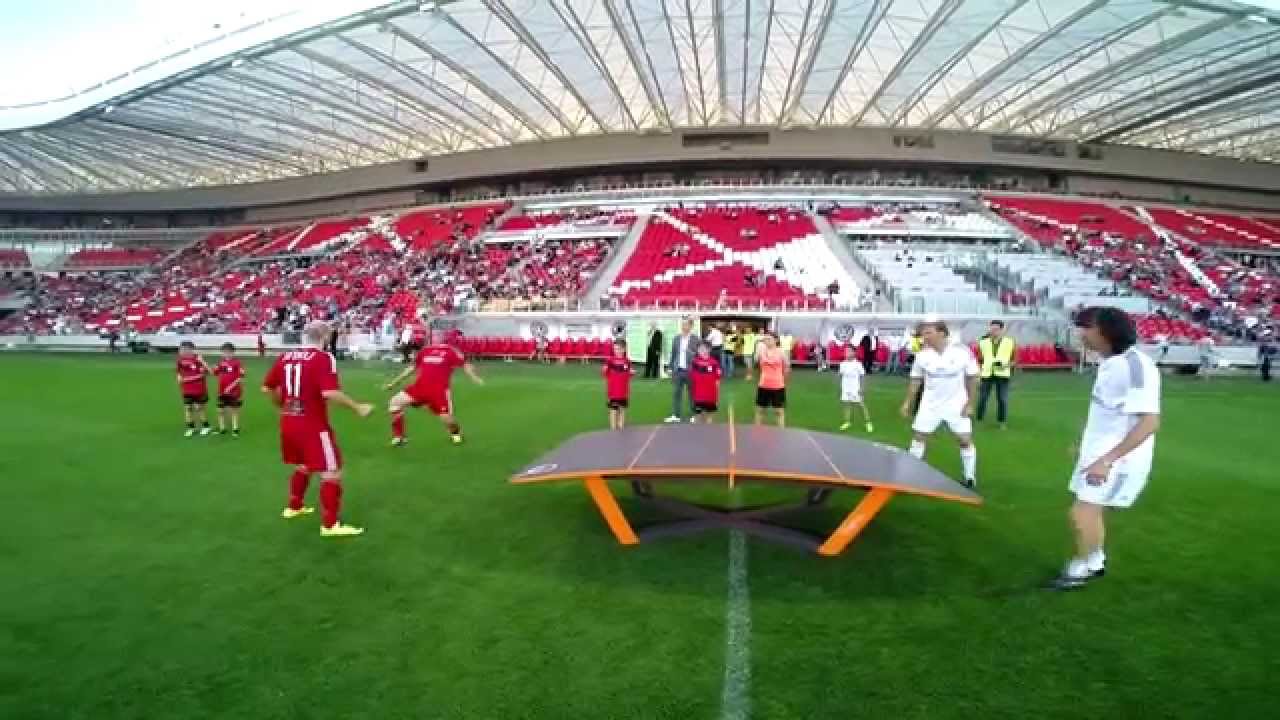
Teqball France has planned some steps in France for its development; first of all formalize the French Federation of Teqball to give credibility to the discipline and create associations and clubs, and licensees, then set up a real sales force with the proposal of different offers in the form of packages for different targets that are the local authorities , football clubs and schools. Then, Teqball France intends to set up a French championship with business schools which will ultimately serve as a model to organize a major competition on a national scale and finally, develop sponsorship and organize a national communication campaign.
We really have the feeling, with the example of this new practice, that it is essential to put in place a development strategy. Teqball France really thought about the questions "How to make yourself known? How to develop this practice? What to put in place? ". They seem well organized to develop this new discipline, this is perhaps the key to success.
[1] ACENSI Jean-Philippe, MARCHISET Gilles Vieille, op. cit. 2 page.
[2] VENIFLEIS Alexis, "Quidditch, roller derby, dodgeball, these" little thumbs "sports which scratch their stones", Sport strategies: the sports marketing specialist : #531, November 27 - December 03 2017, 14 - 19 pages.
[3] "Five-a-side football: Soccer Park - The Five still attacking" Sport strategies: the sports marketing specialist : #518 hebdo, 17-23 July 2017, 12 pages - 17.
Pierre studied STAPS, and validated a master's degree in sports management, after studying in Reims, Frankfurt and Lille. I discovered the padel in 2014 during my Erasmus year in Frankfurt thanks to a Spanish friend. Damn it is good padel !

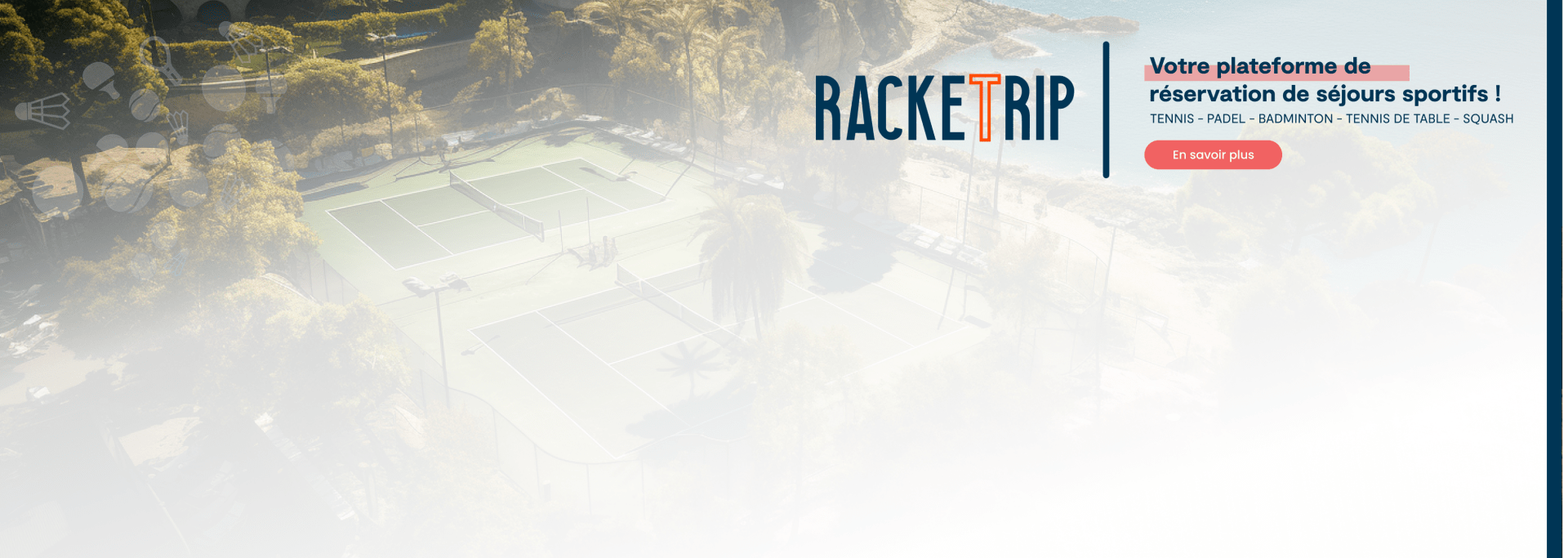


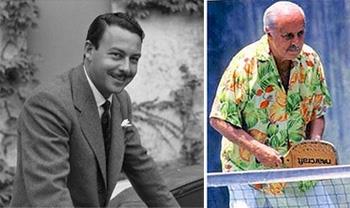












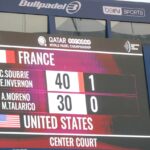


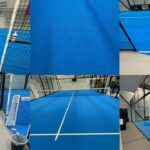


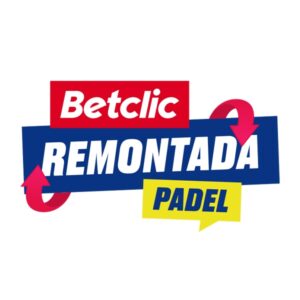







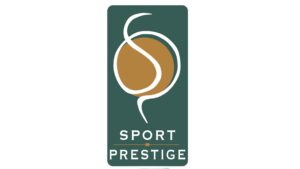
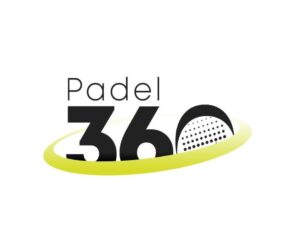
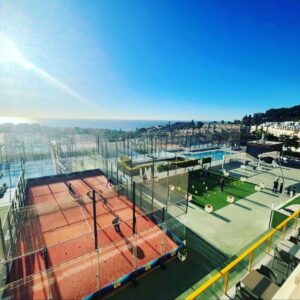
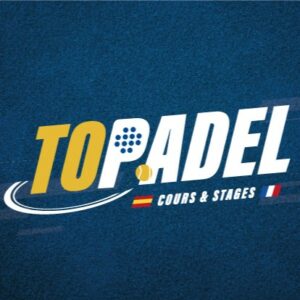



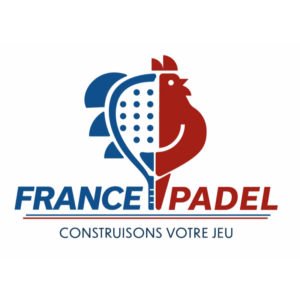
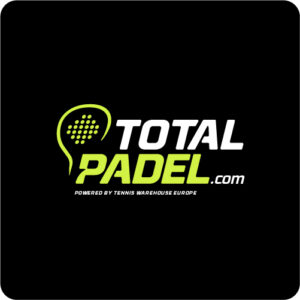
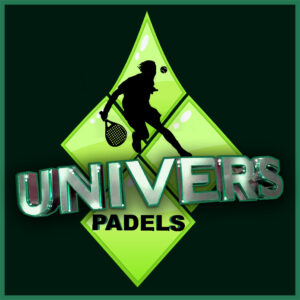


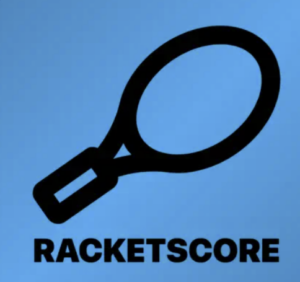
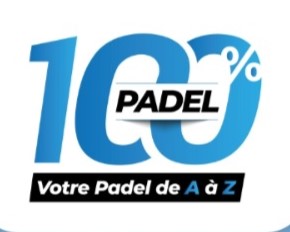
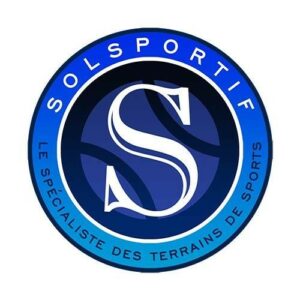

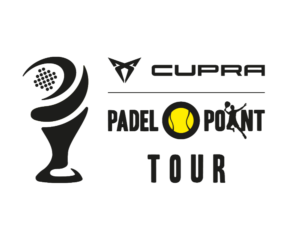

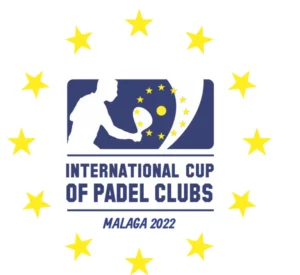

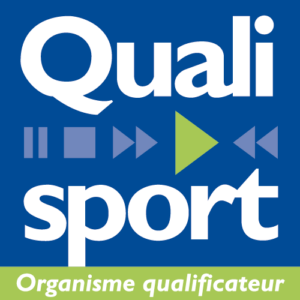
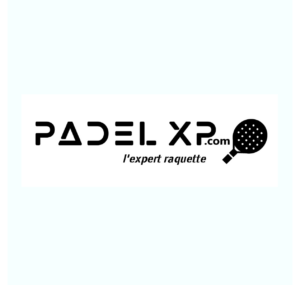

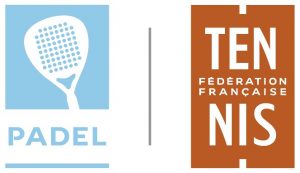


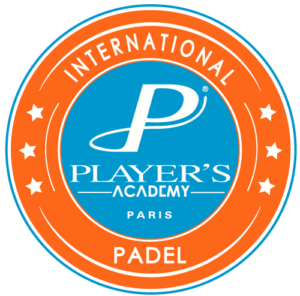
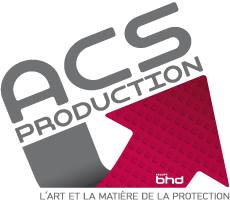
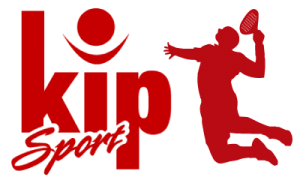

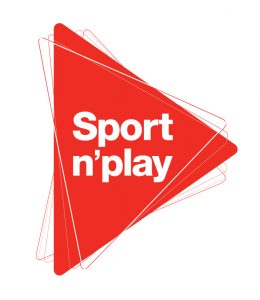

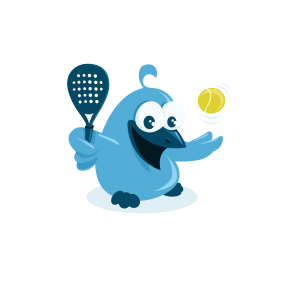

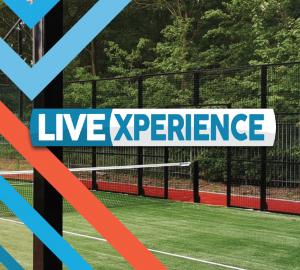
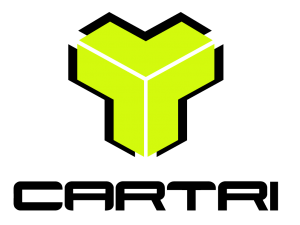

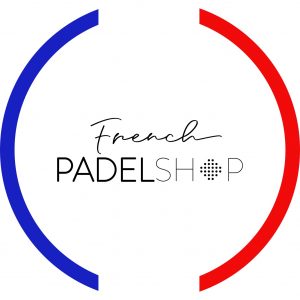
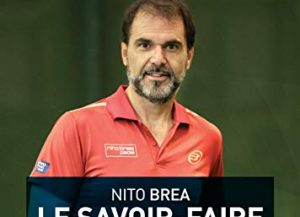
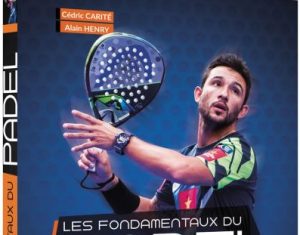

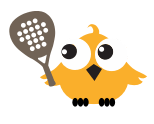
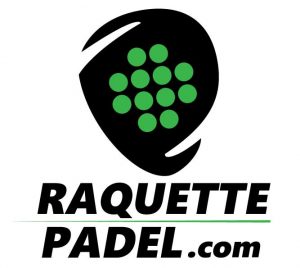
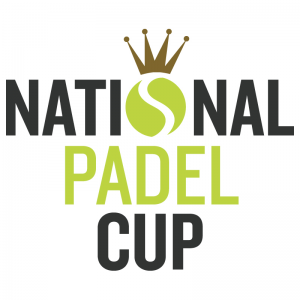
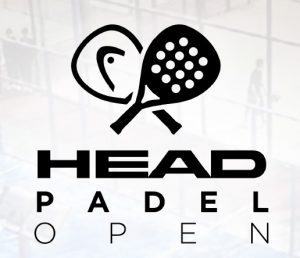

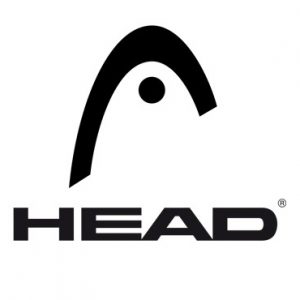


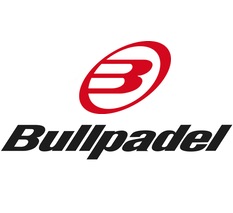
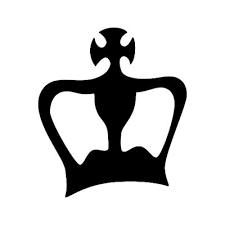
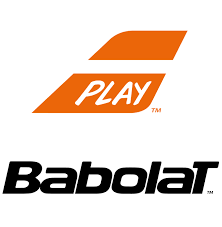
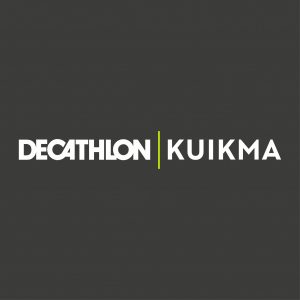

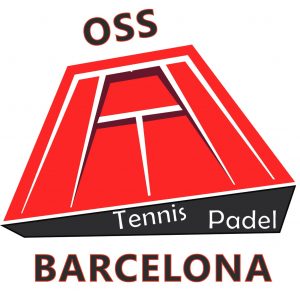
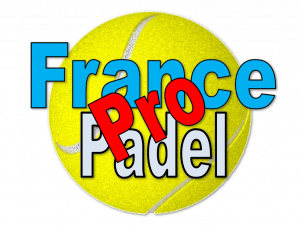

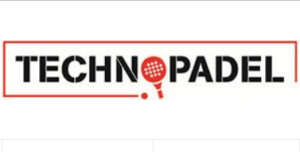
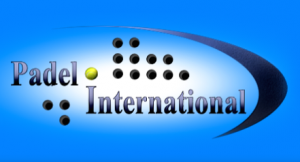

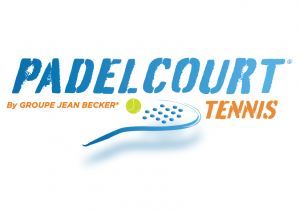

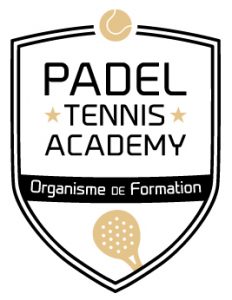
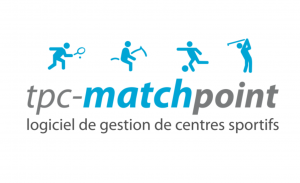

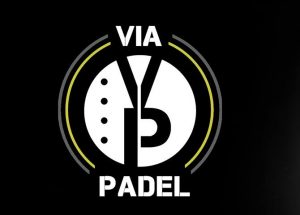
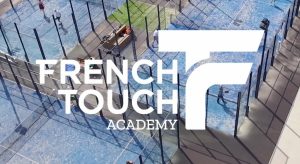



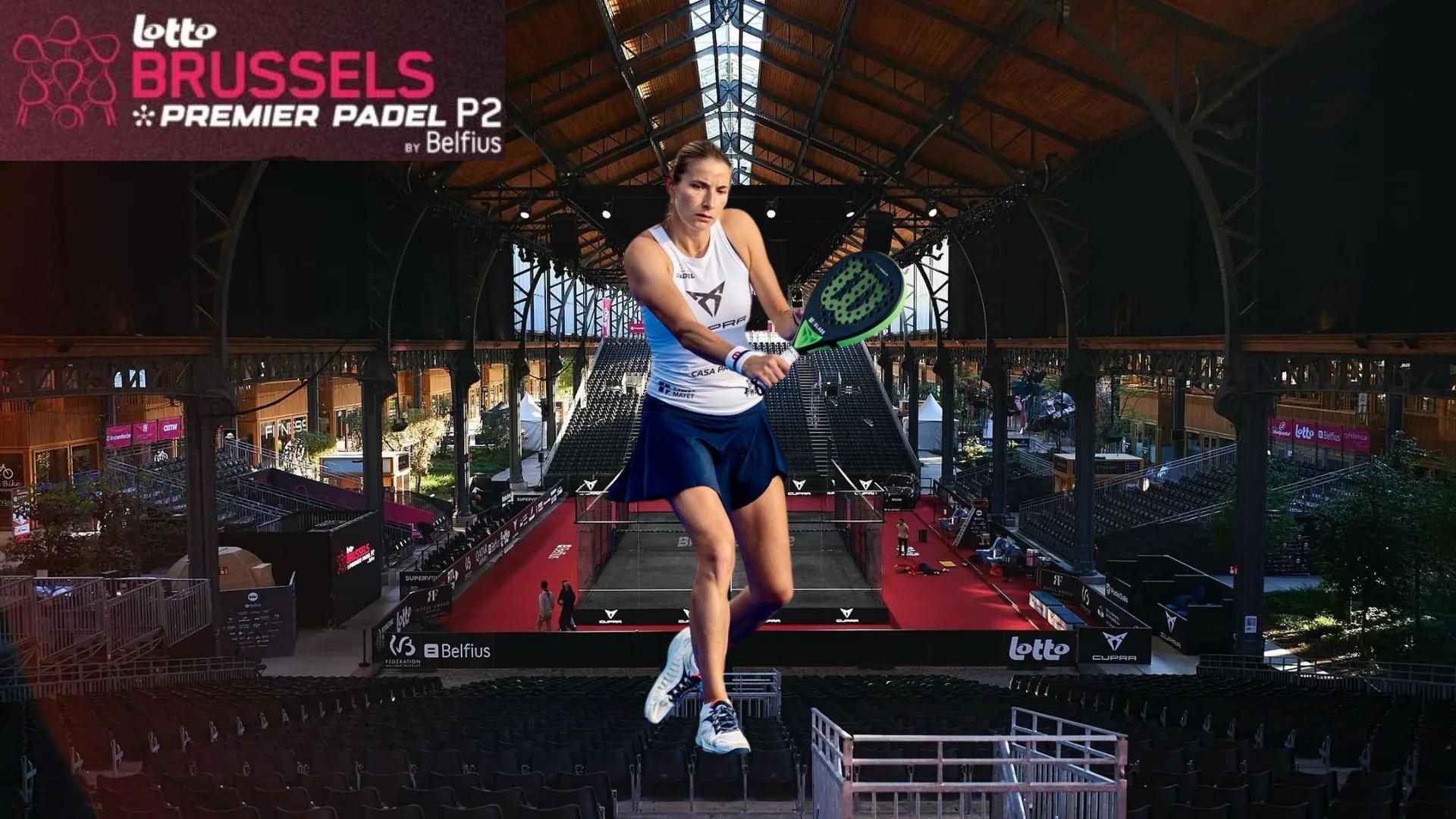 Premier Padel Brussels P2 – Alix Collombon qualified for the second round
Premier Padel Brussels P2 – Alix Collombon qualified for the second round Nallé Grinda: “Democratize the padel in the USA with PadelX "
Nallé Grinda: “Democratize the padel in the USA with PadelX "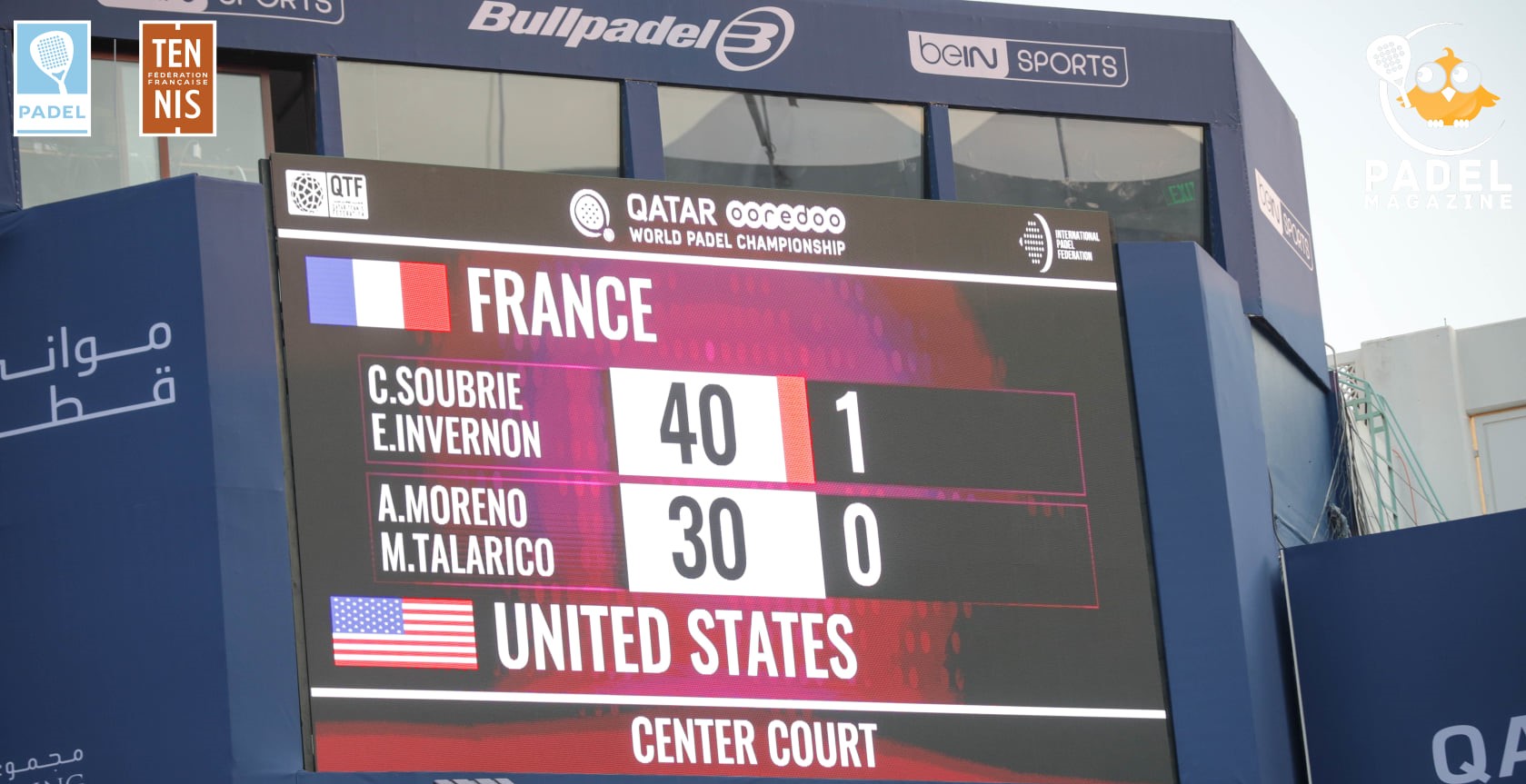 The score at padel : manual
The score at padel : manual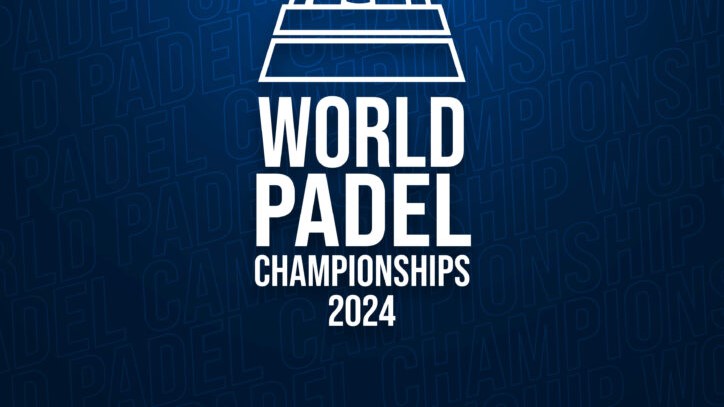 The location chosen for the 2024 World Cup announced at the end of the month!
The location chosen for the 2024 World Cup announced at the end of the month!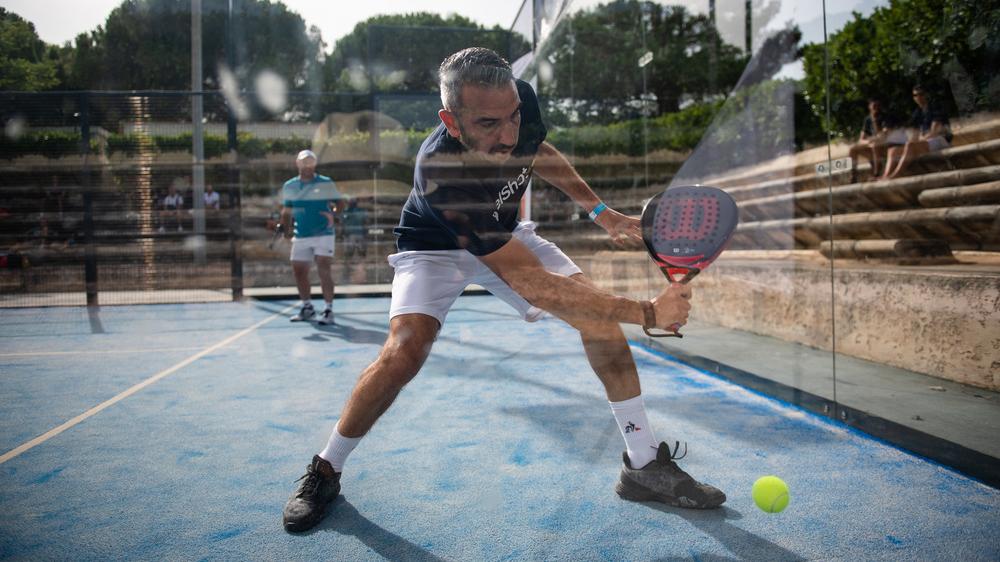 Simon Boissé: “We know that there are two nations in front of us”
Simon Boissé: “We know that there are two nations in front of us”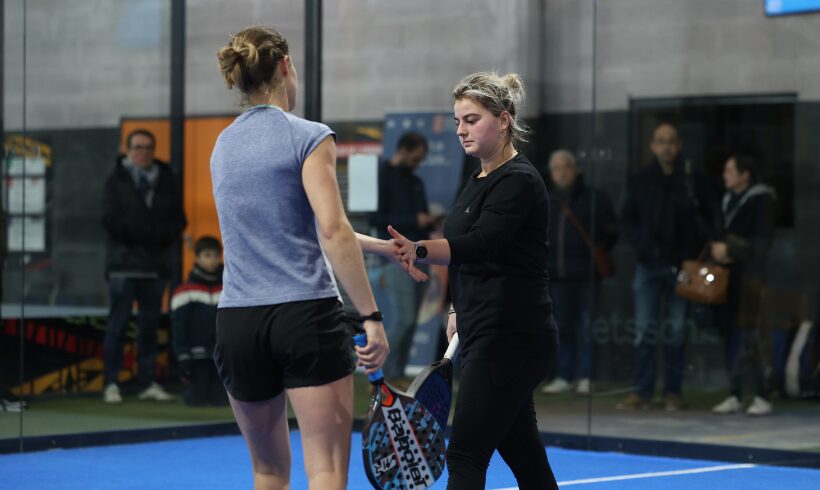 Marie Maligo: “This period of frequent changes of partners was beneficial for me”
Marie Maligo: “This period of frequent changes of partners was beneficial for me”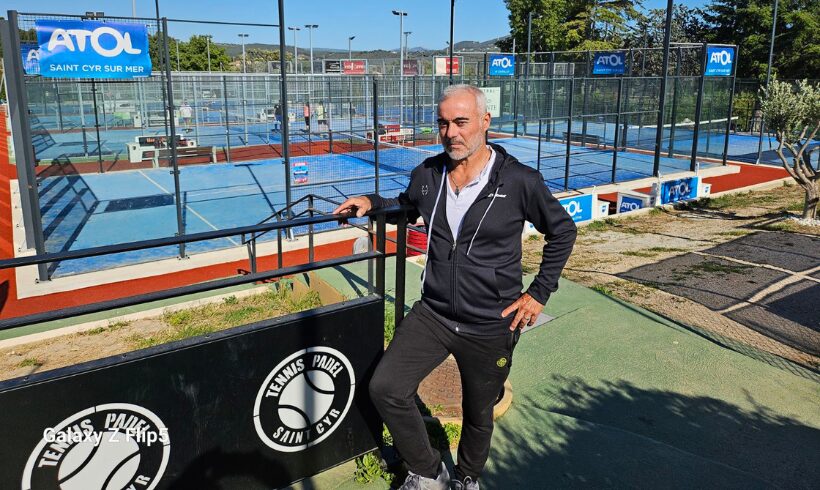 Alain Idier: “Adding tracks of padel, without sacrificing tennis”
Alain Idier: “Adding tracks of padel, without sacrificing tennis”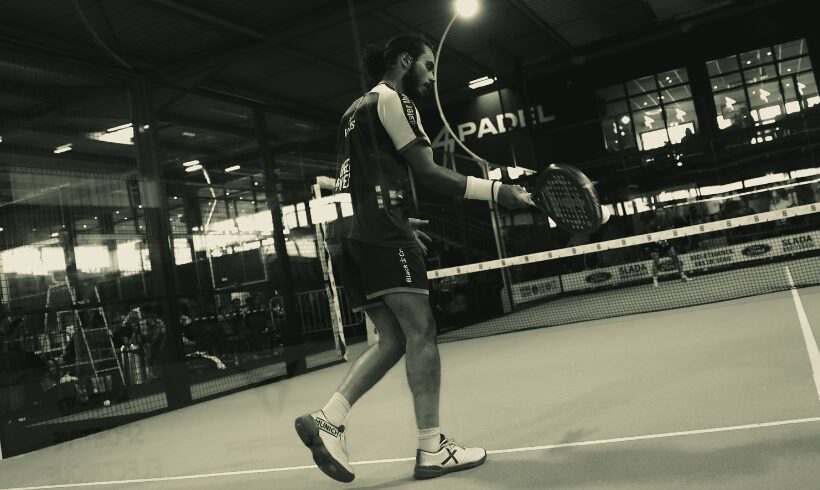 Manuel Vives: “It’s extremely difficult to get by financially”
Manuel Vives: “It’s extremely difficult to get by financially”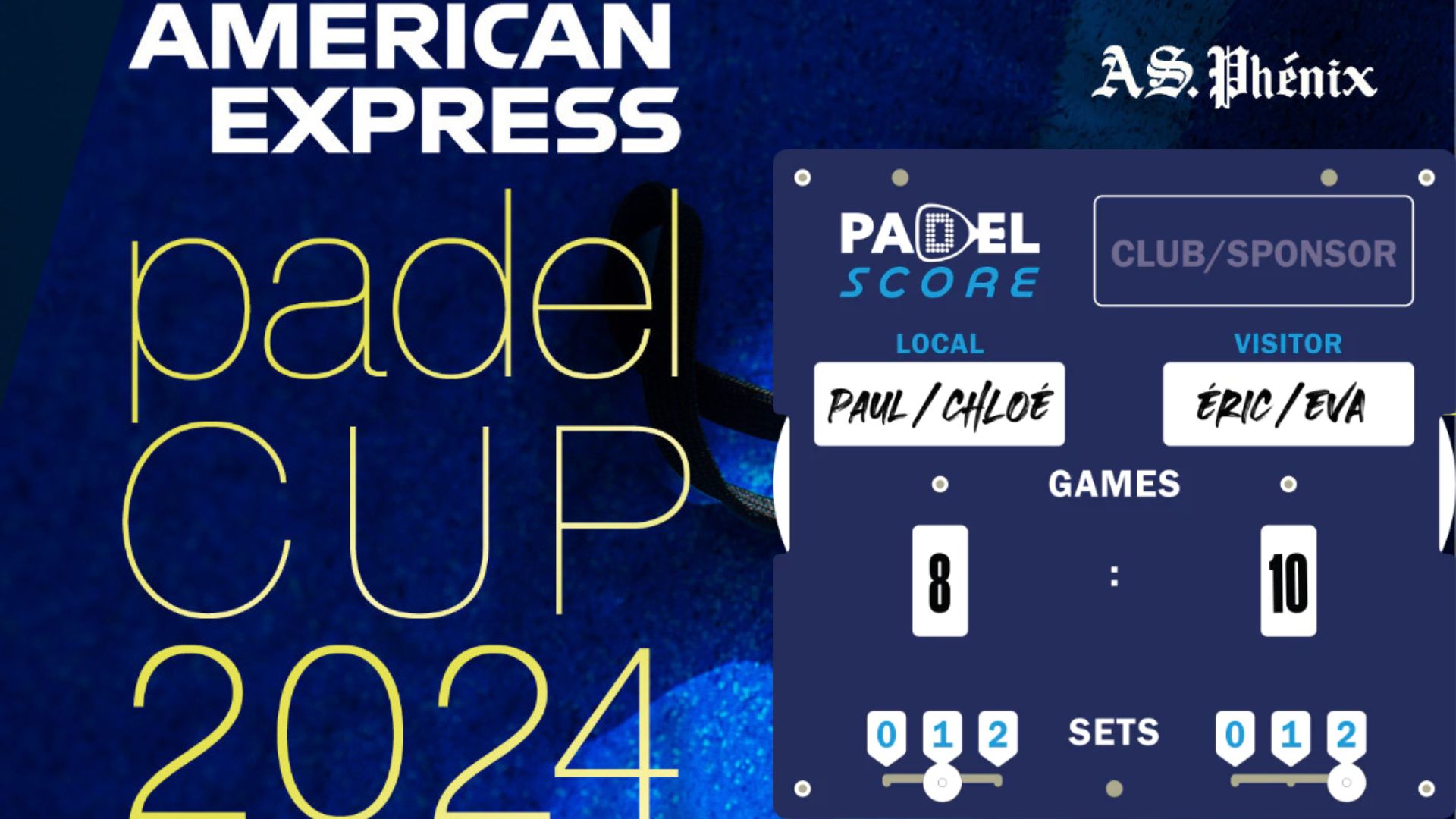 Padel Score comes to Tahiti for American Express Padel Cup!
Padel Score comes to Tahiti for American Express Padel Cup!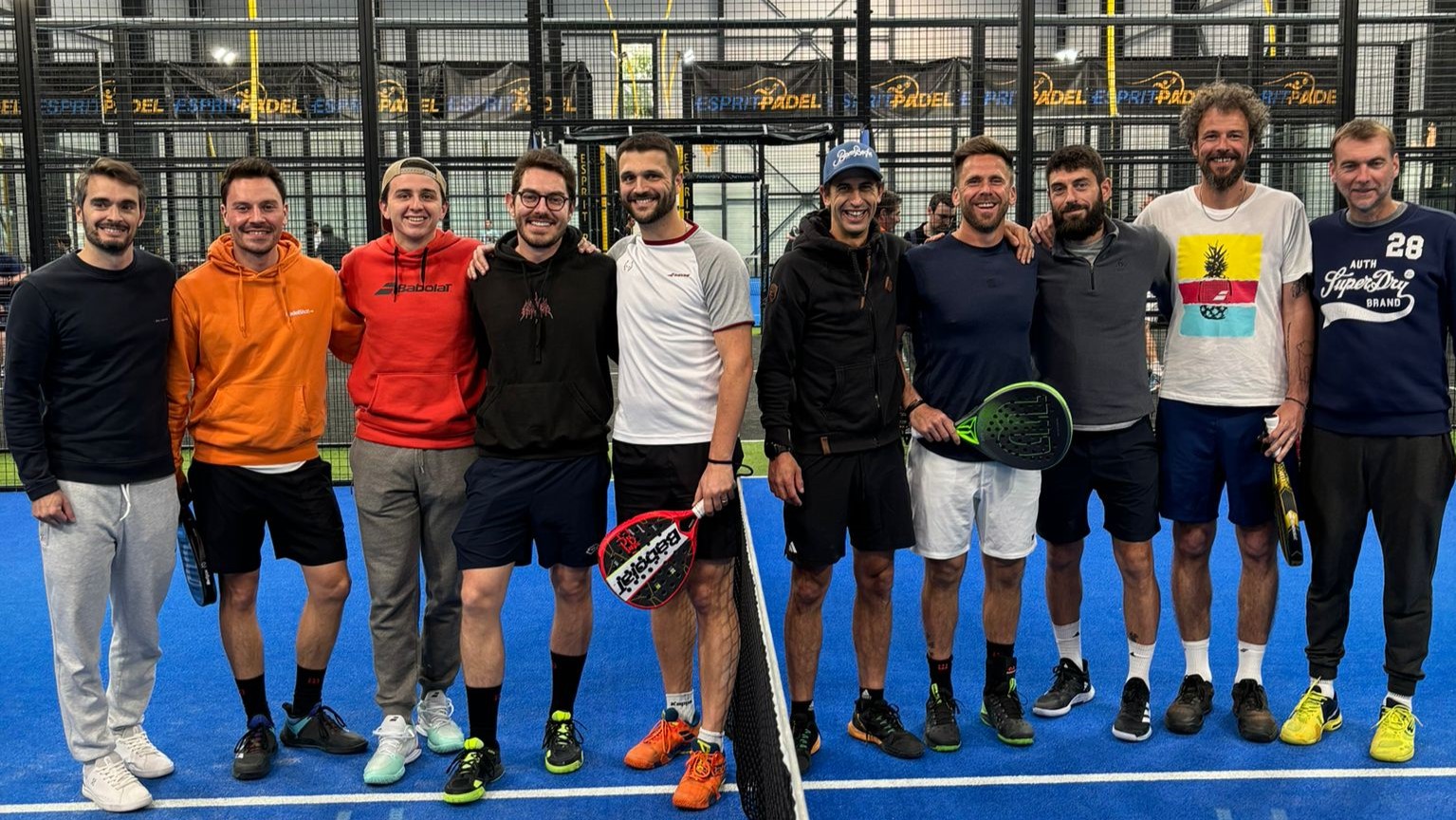 Mind Padel Lyon and the Auvergne Rhône-Alpes League innovate with team tournaments
Mind Padel Lyon and the Auvergne Rhône-Alpes League innovate with team tournaments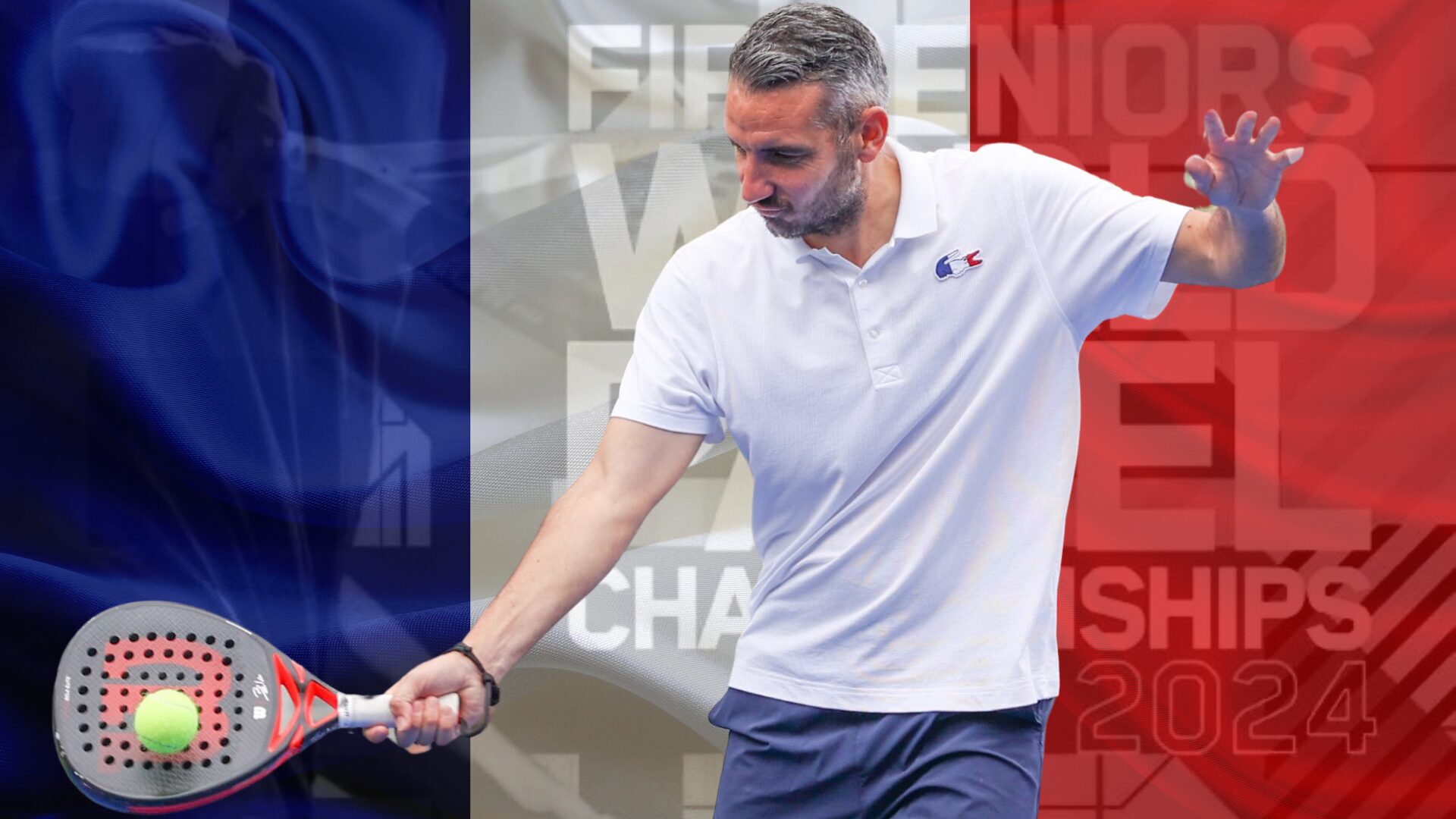 Simon Boissé: “We know that there are two nations in front of us”
Simon Boissé: “We know that there are two nations in front of us”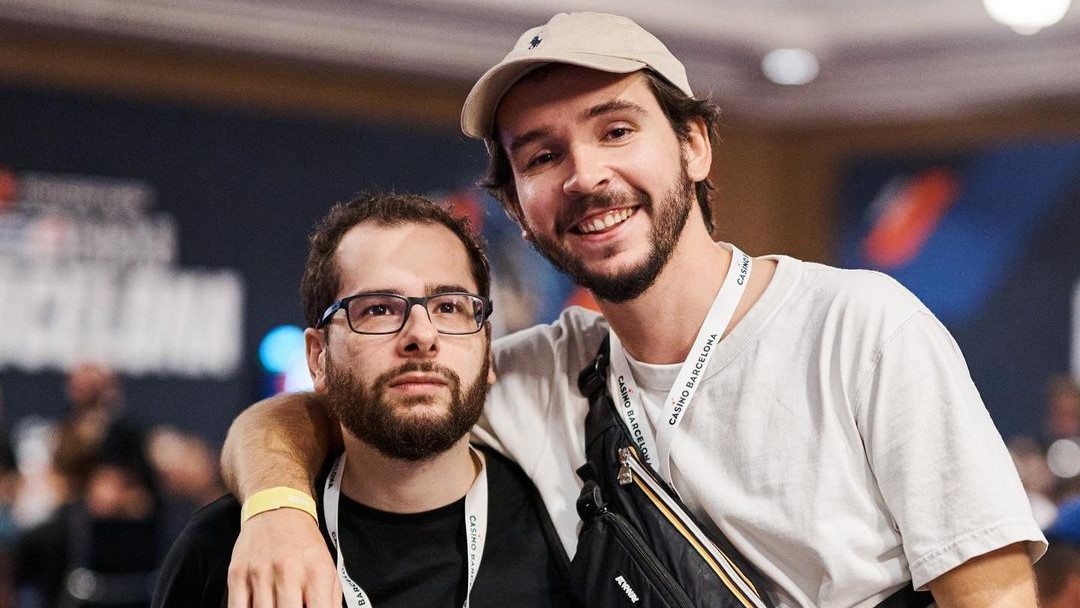 Team PAX (Domingo / Xari) returns to victory
Team PAX (Domingo / Xari) returns to victory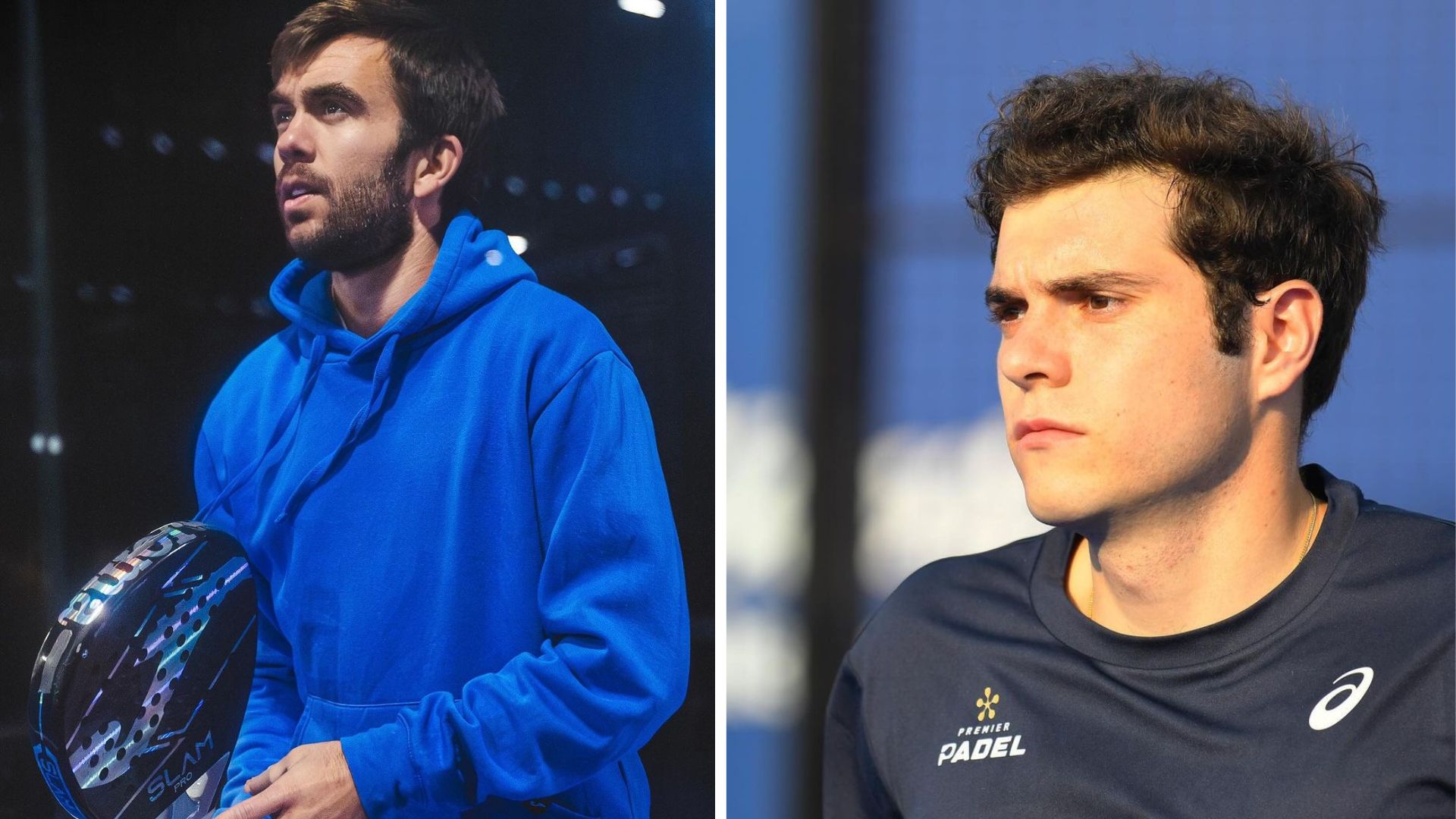 It’s off to a bad start for Pincho Fernandez and Javier Barahona…
It’s off to a bad start for Pincho Fernandez and Javier Barahona…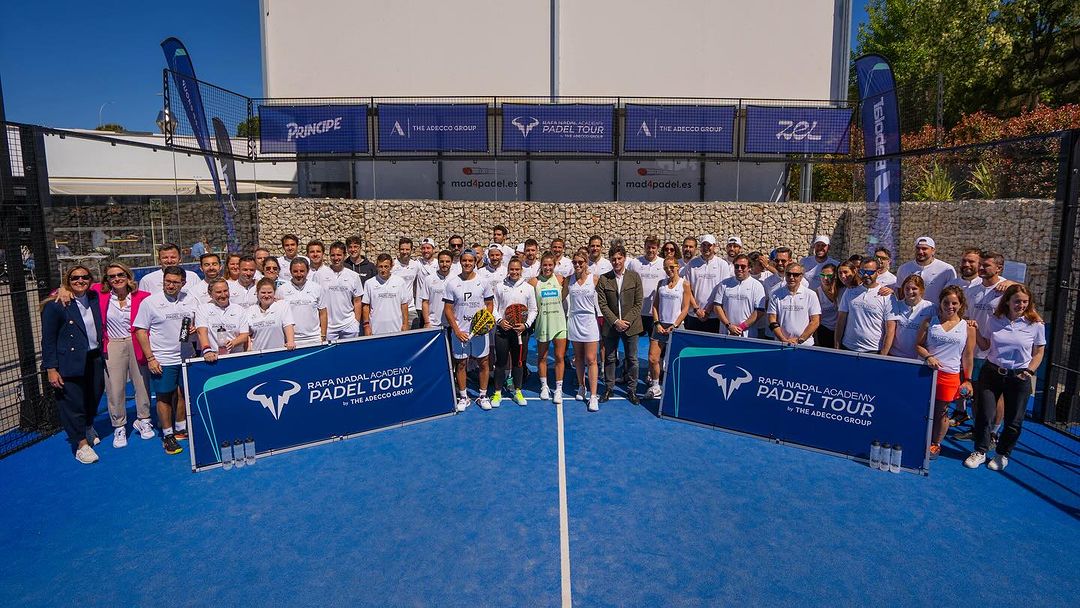 Do you know the Rafa Nadal Academy Tour?
Do you know the Rafa Nadal Academy Tour?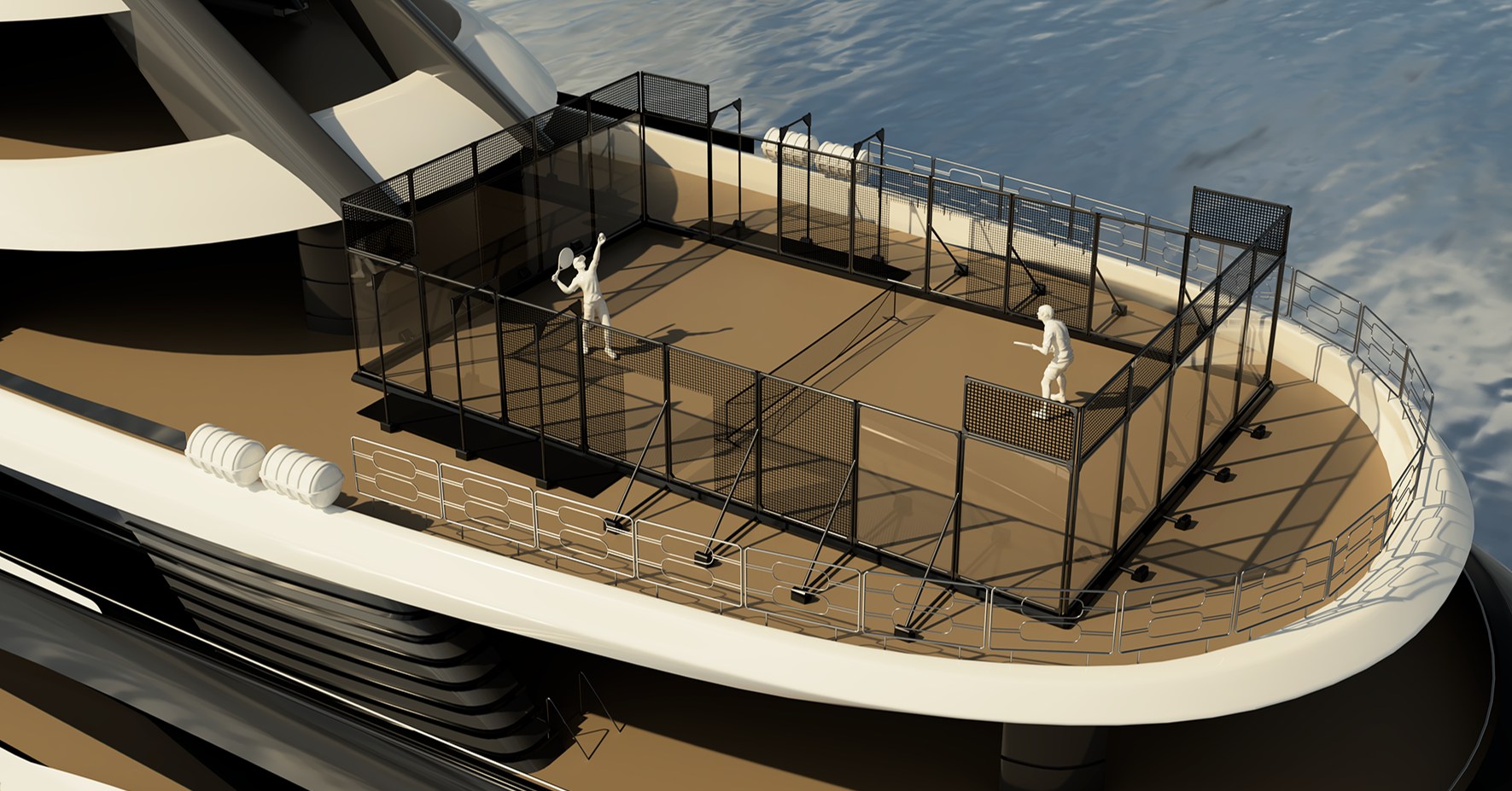 Play at padel on his yacht? Possible for €233.000!
Play at padel on his yacht? Possible for €233.000!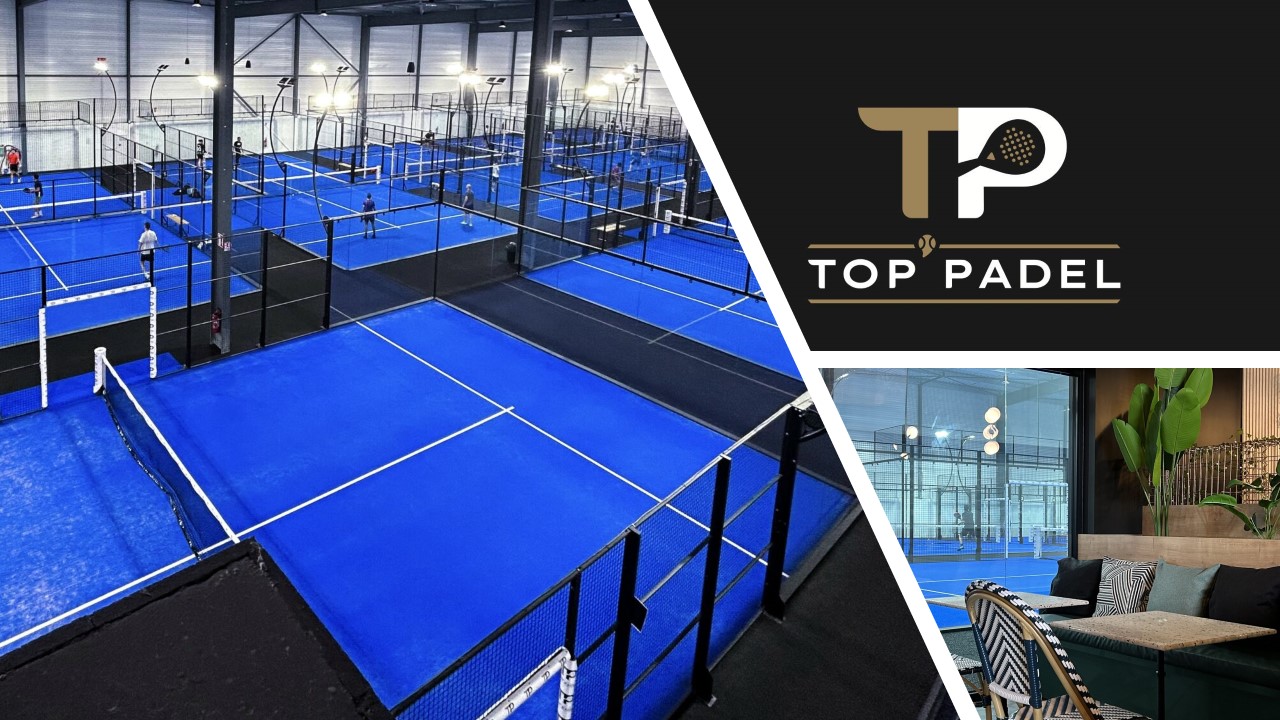 TOP Padel : “A premium club with 10 slopes in Toulouse”
TOP Padel : “A premium club with 10 slopes in Toulouse” Our Top 10 training courses padel in France and Europe
Our Top 10 training courses padel in France and Europe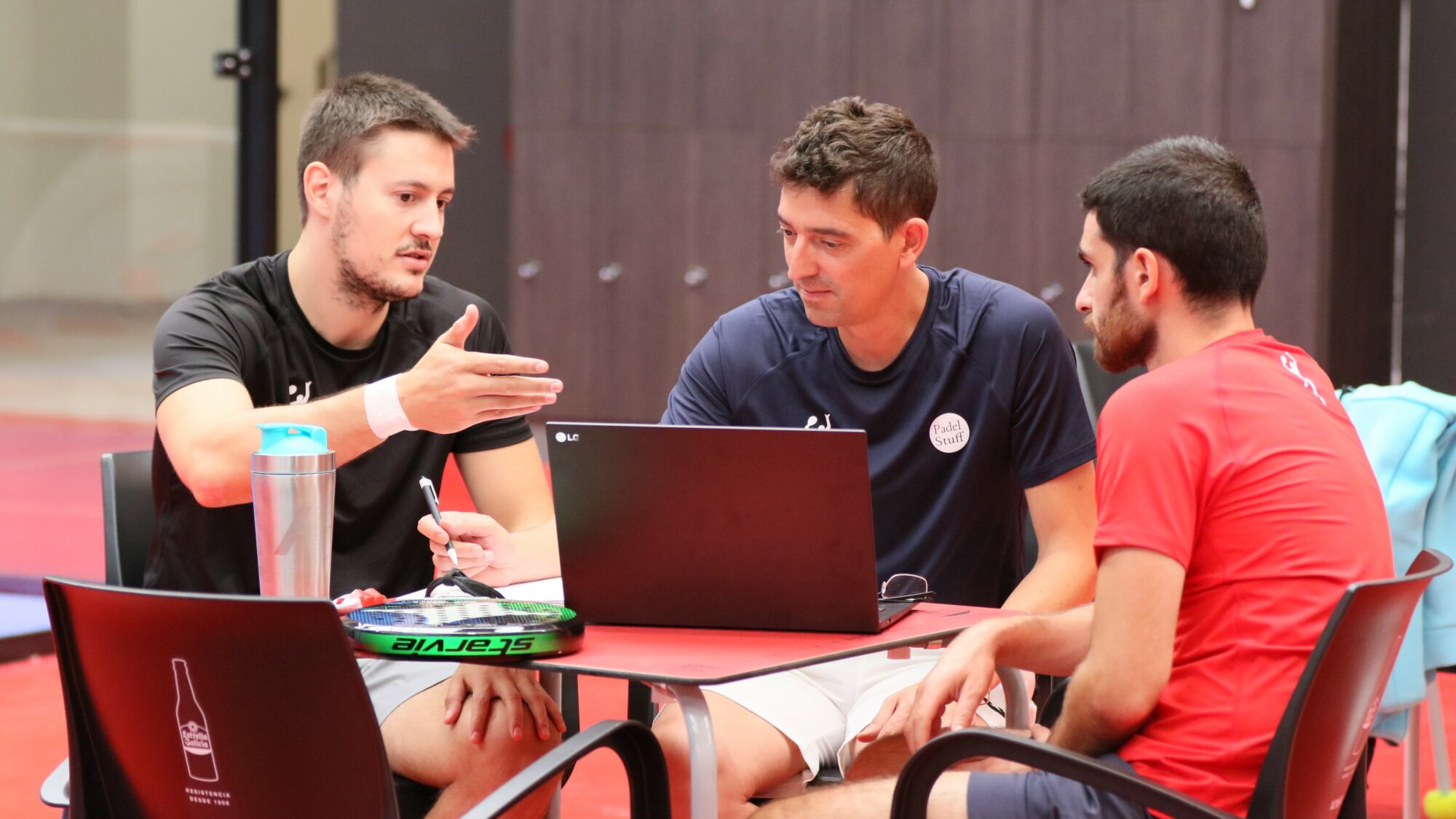 At the heart of padel – Episode 25: Paul and Andoni answer your questions
At the heart of padel – Episode 25: Paul and Andoni answer your questions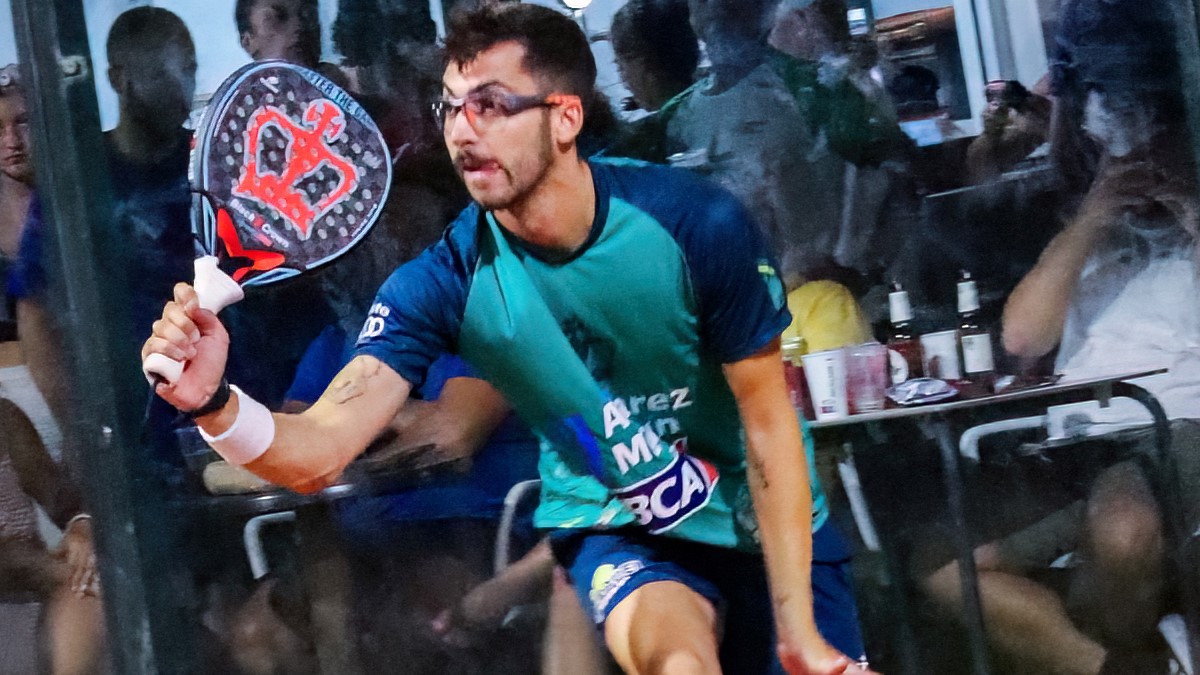 Tactical padel – What to do when faced with players who systematically stay at the bottom?
Tactical padel – What to do when faced with players who systematically stay at the bottom?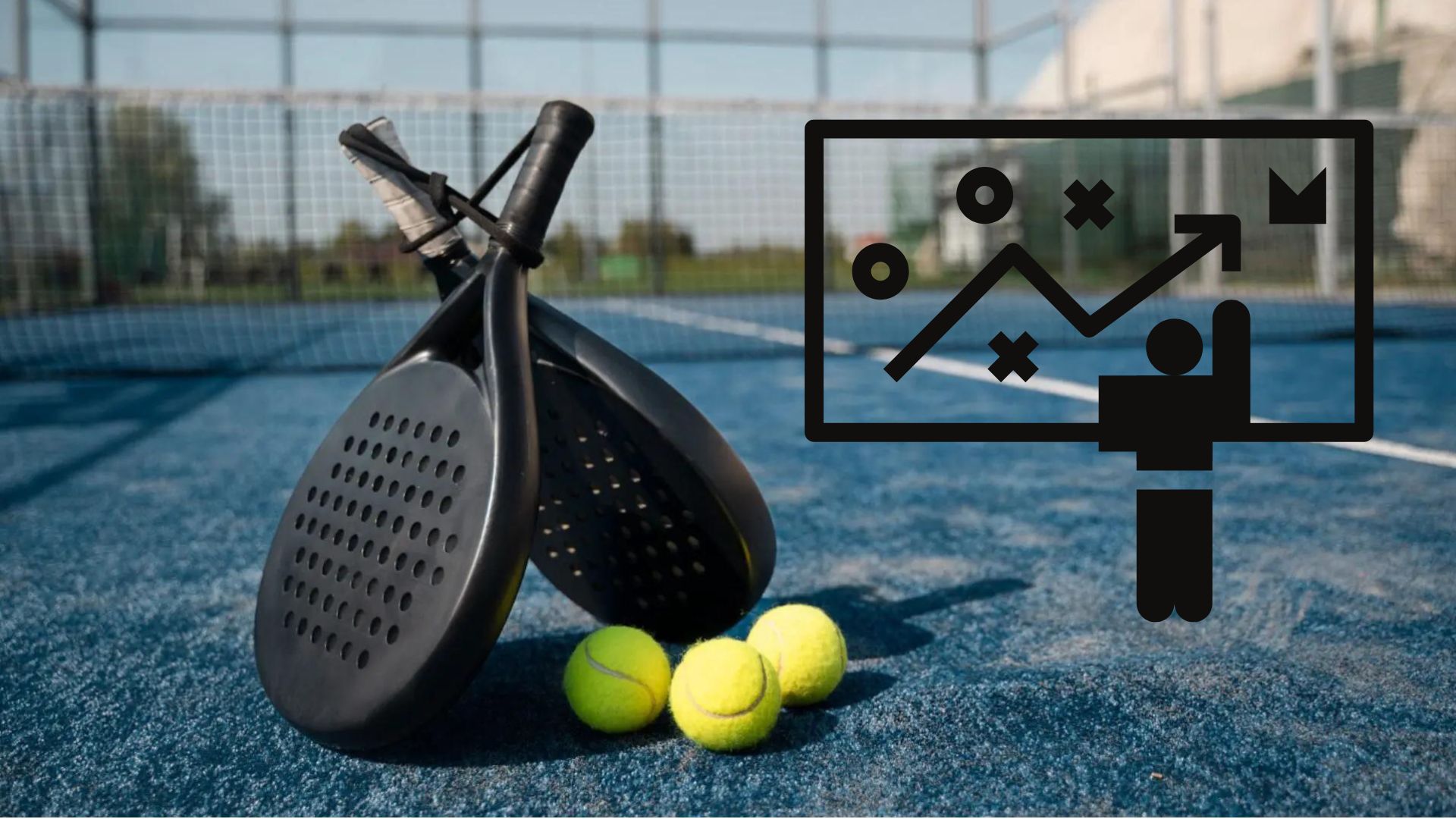 The basic tactics of padel
The basic tactics of padel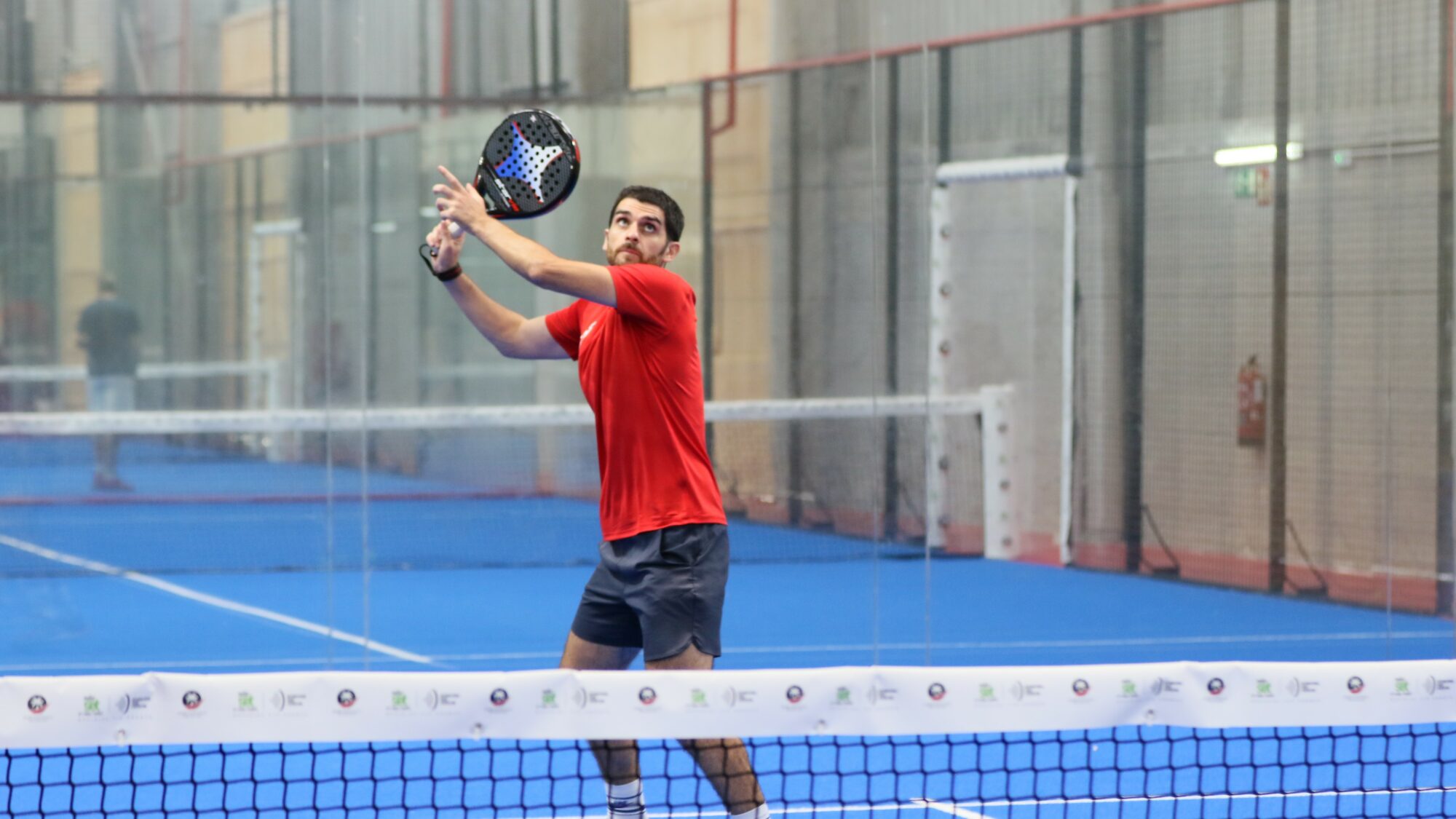 At the heart of padel – Episode 25: Paul and Andoni answer your questions
At the heart of padel – Episode 25: Paul and Andoni answer your questions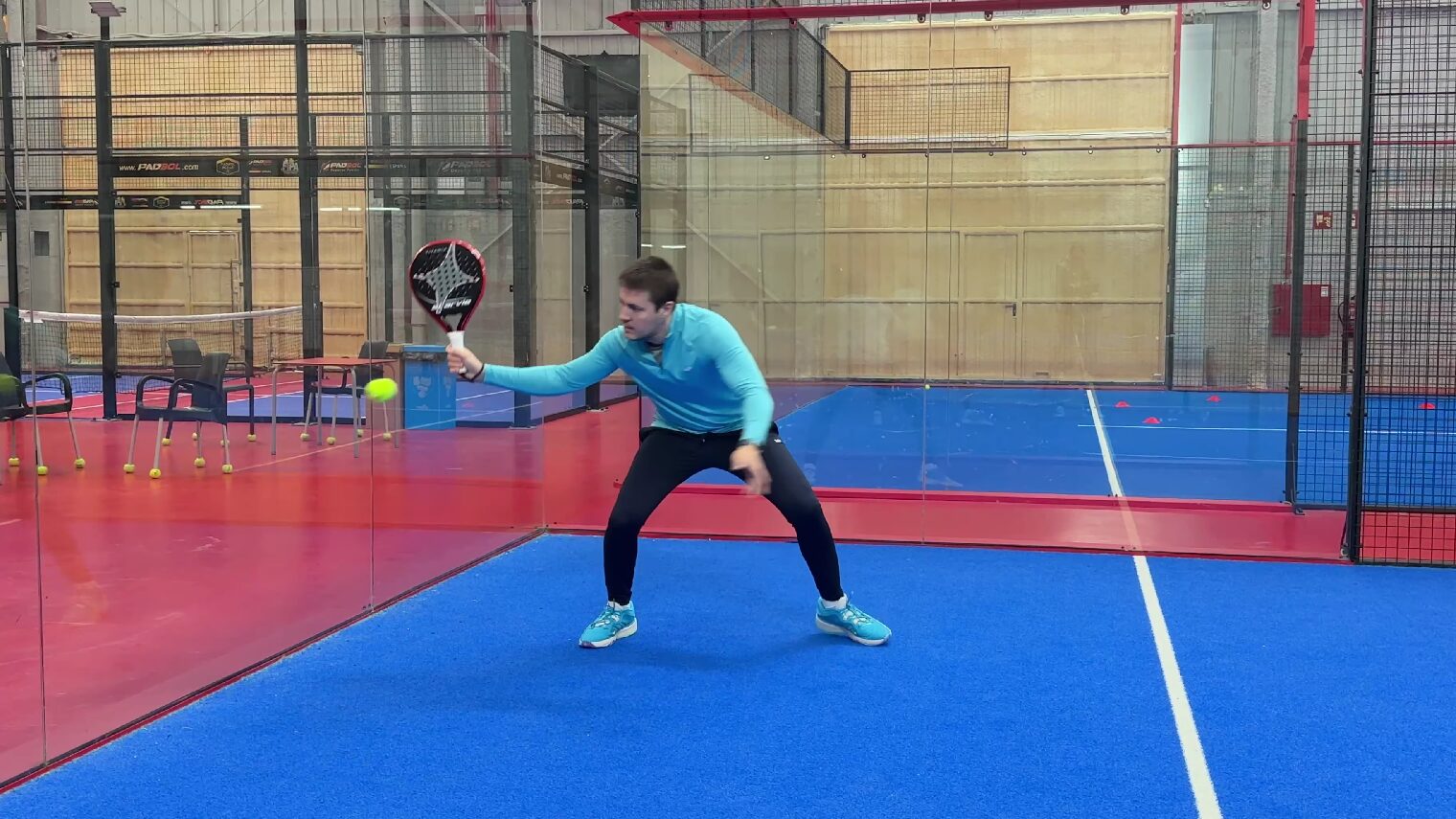 At the heart of padel – Episode 23: defend the window well
At the heart of padel – Episode 23: defend the window well Prohibition on playing topless Padel : the reasons
Prohibition on playing topless Padel : the reasons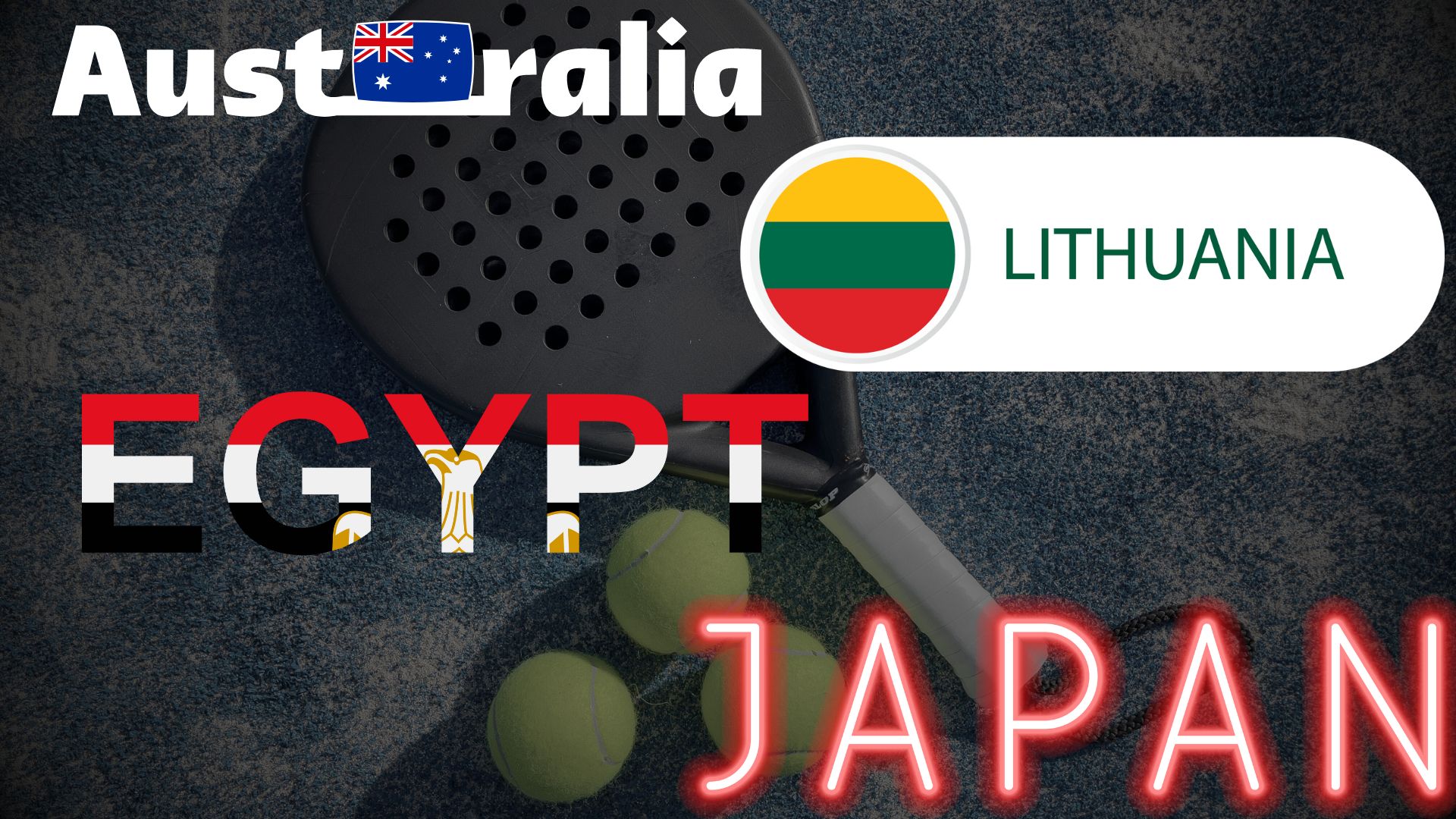 FIP Tour – Going far from Europe, THE strategy to earn points!
FIP Tour – Going far from Europe, THE strategy to earn points!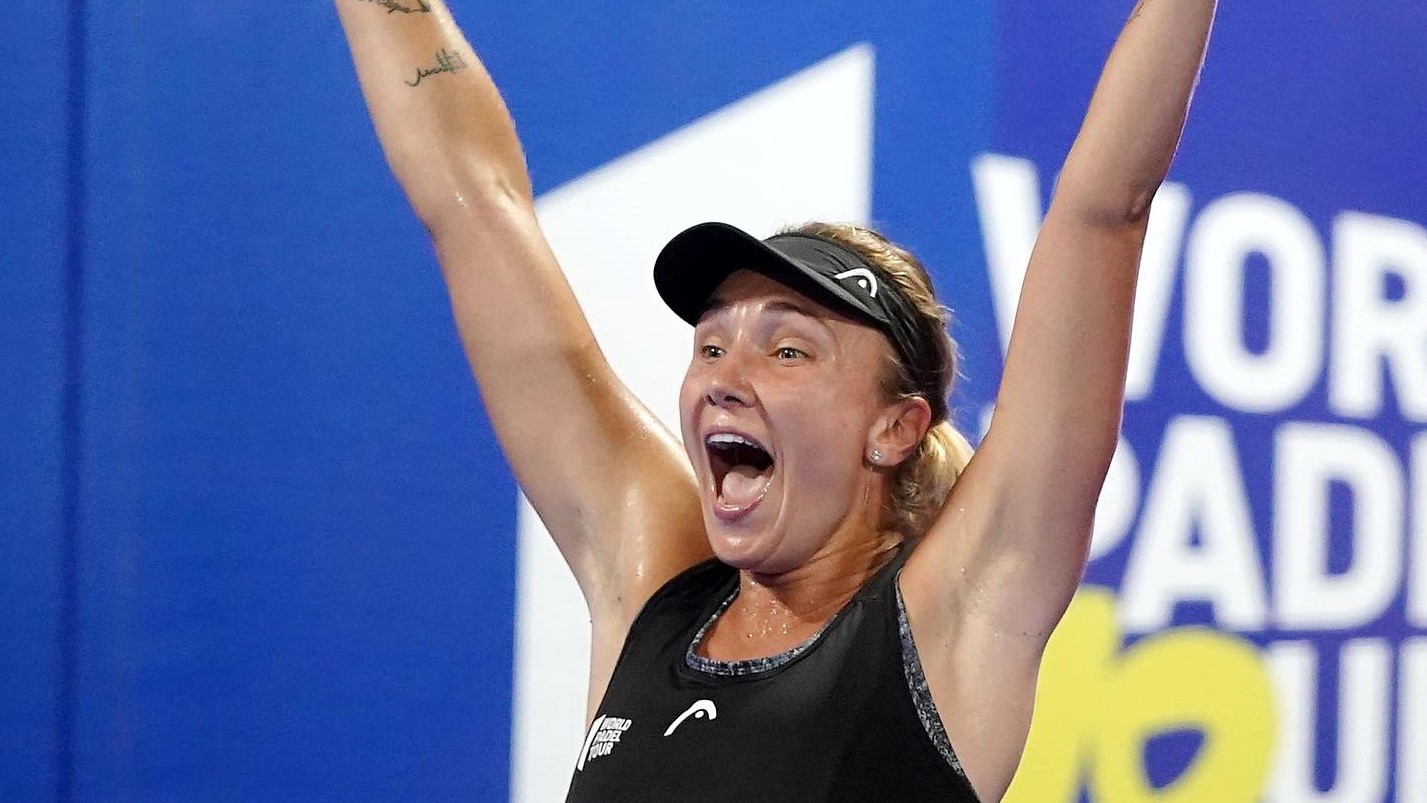 What is a good football player? padel ?
What is a good football player? padel ?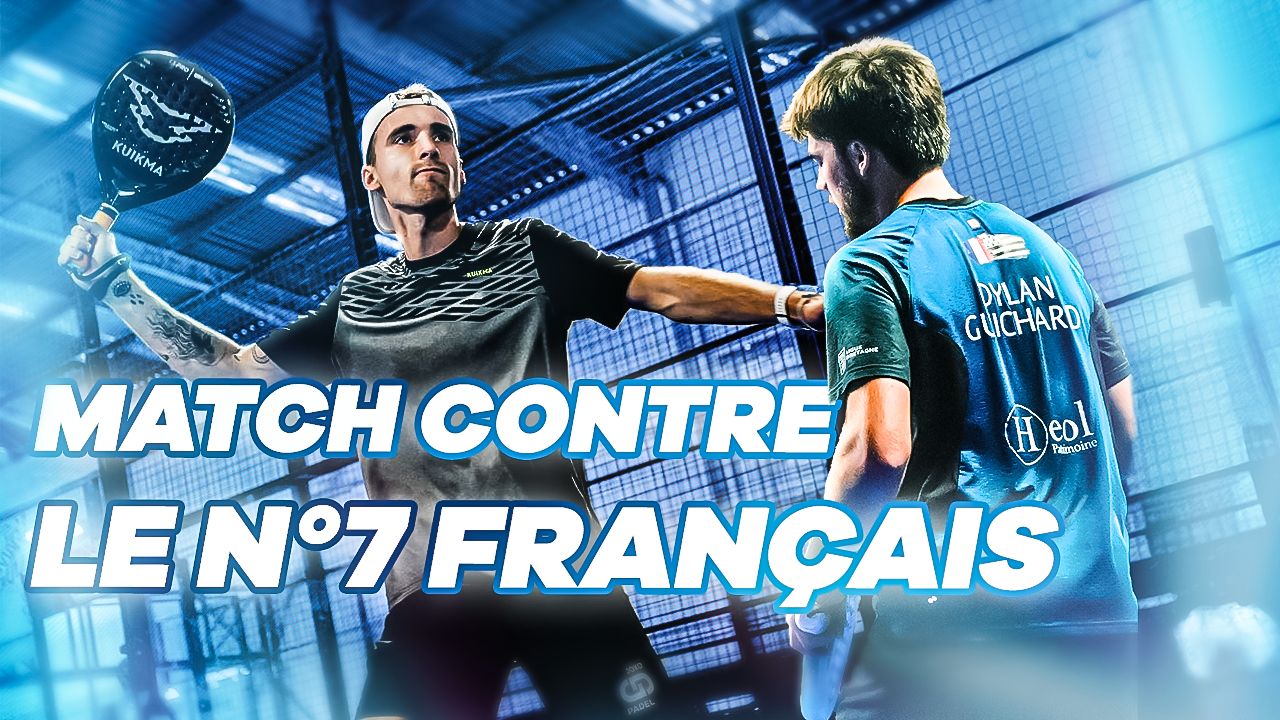 “Lefties give me headaches when I play against them!”
“Lefties give me headaches when I play against them!”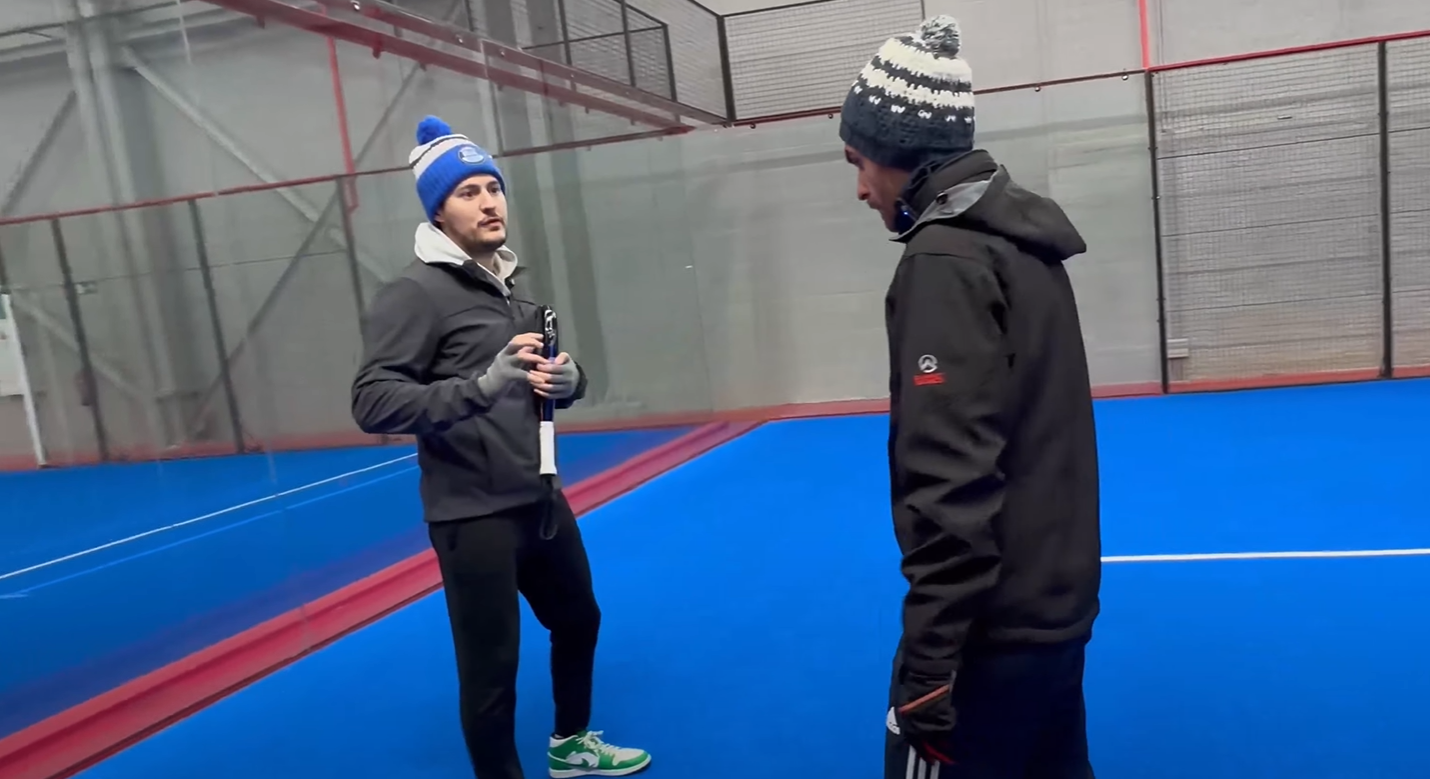 At the heart of padel – Episode 14: how to earn points in winter?
At the heart of padel – Episode 14: how to earn points in winter?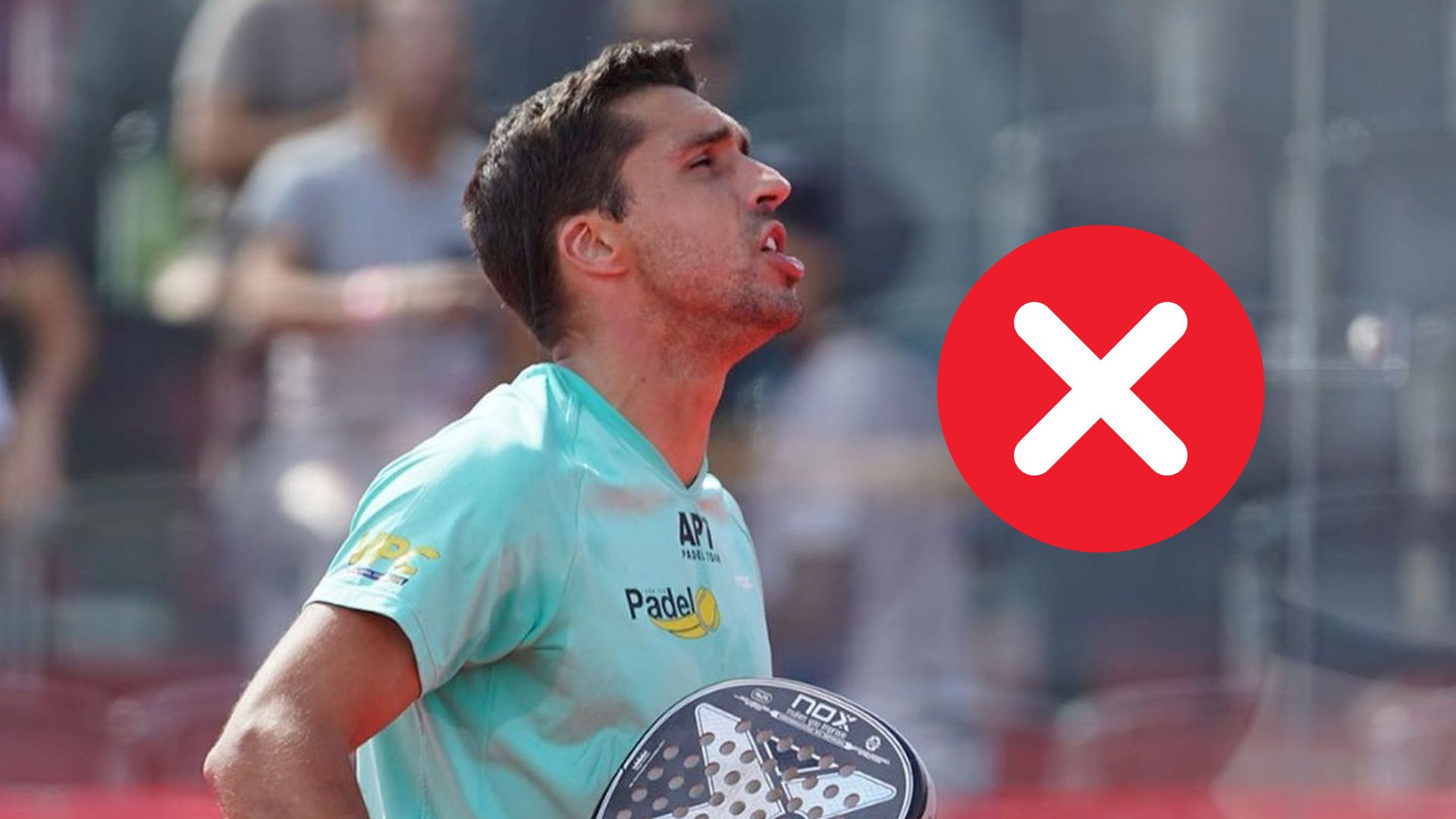 A par 4 is always a winner...even if you manage to defend it!
A par 4 is always a winner...even if you manage to defend it!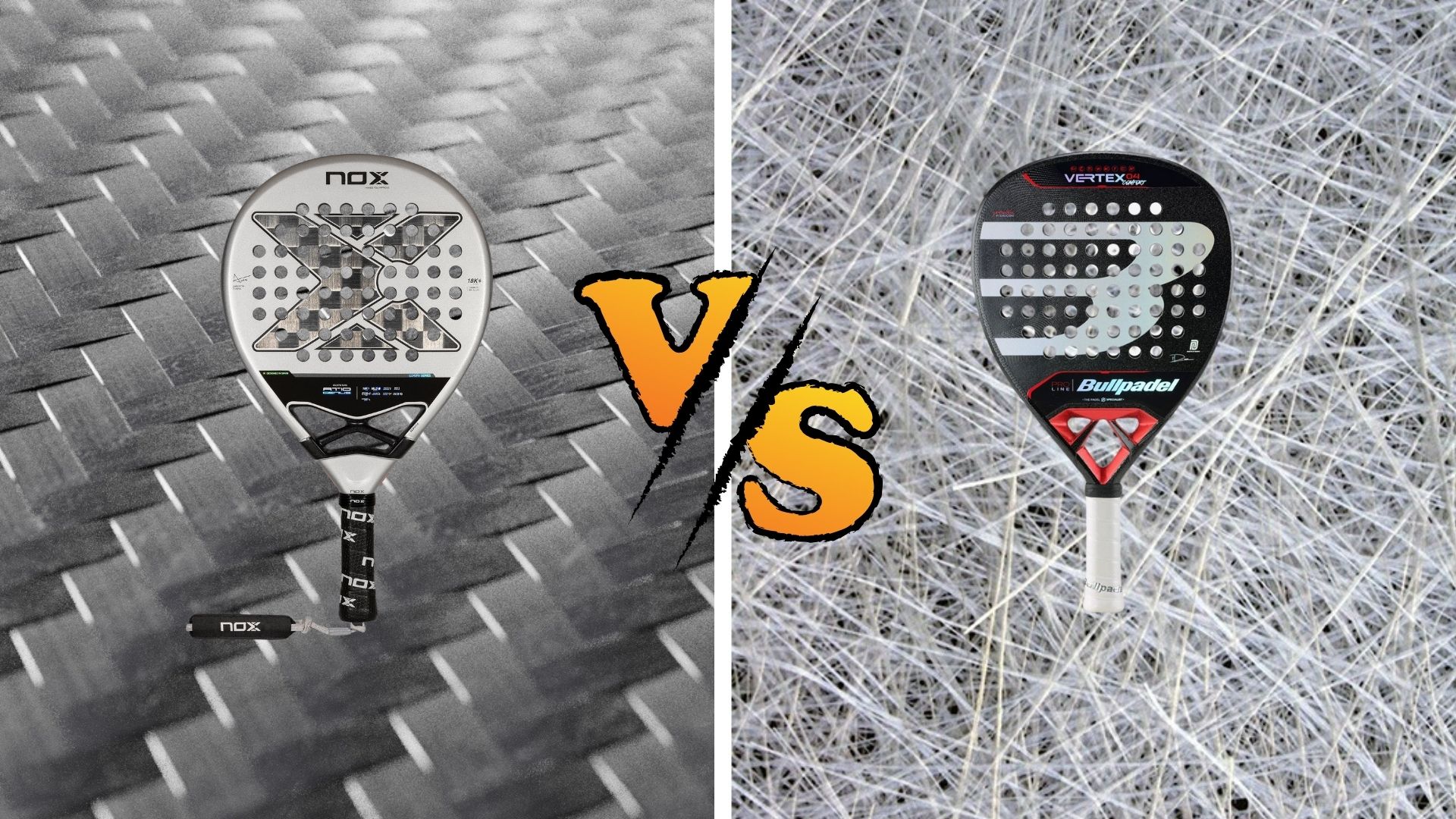 Carbon fiber VS fiberglass: what to choose?
Carbon fiber VS fiberglass: what to choose?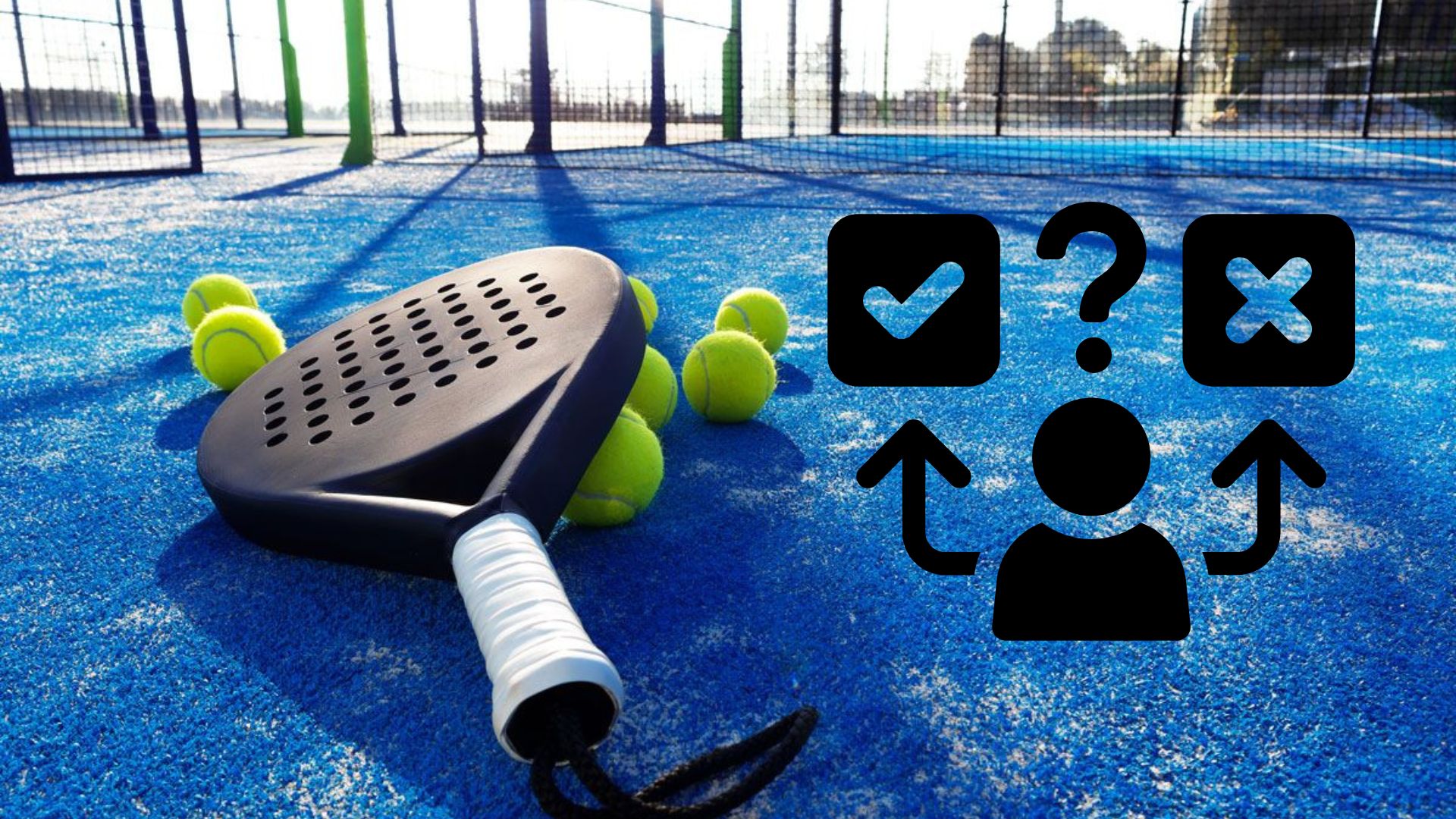 How to effectively test a racket padel ?
How to effectively test a racket padel ?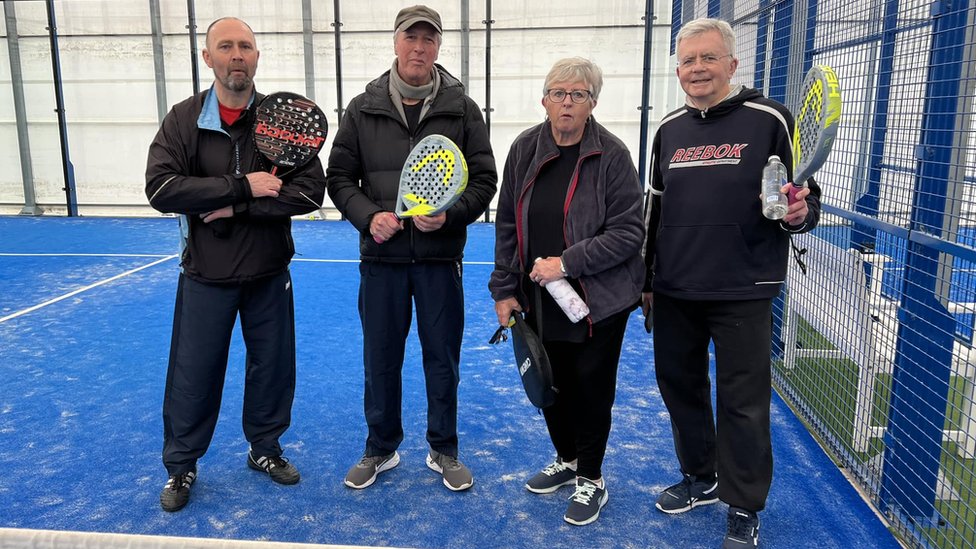 La padel to fight Parkinson's disease
La padel to fight Parkinson's disease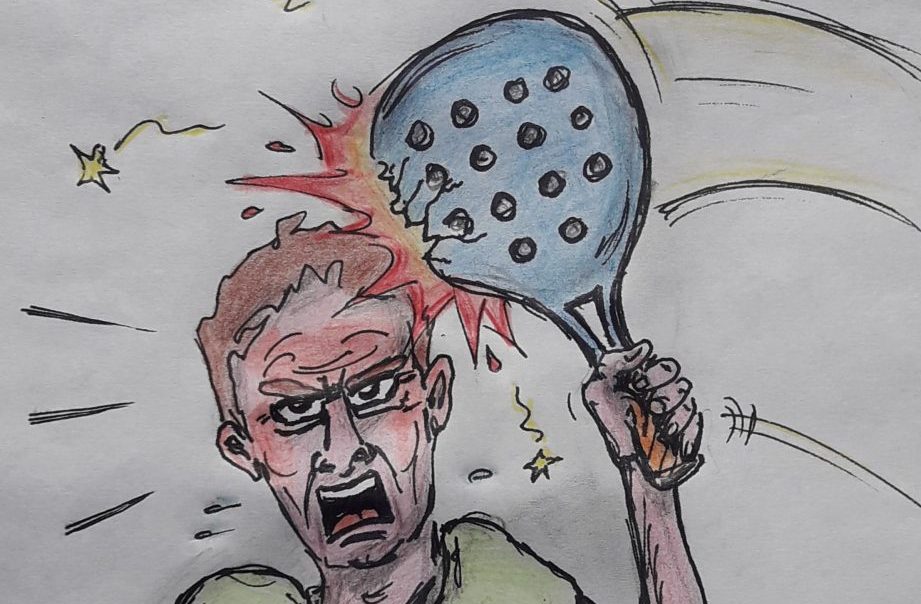 Don't play with a cracked or broken racket, your body will thank you!
Don't play with a cracked or broken racket, your body will thank you! Michel Cymes: “The padel, physically, it’s serious!”
Michel Cymes: “The padel, physically, it’s serious!”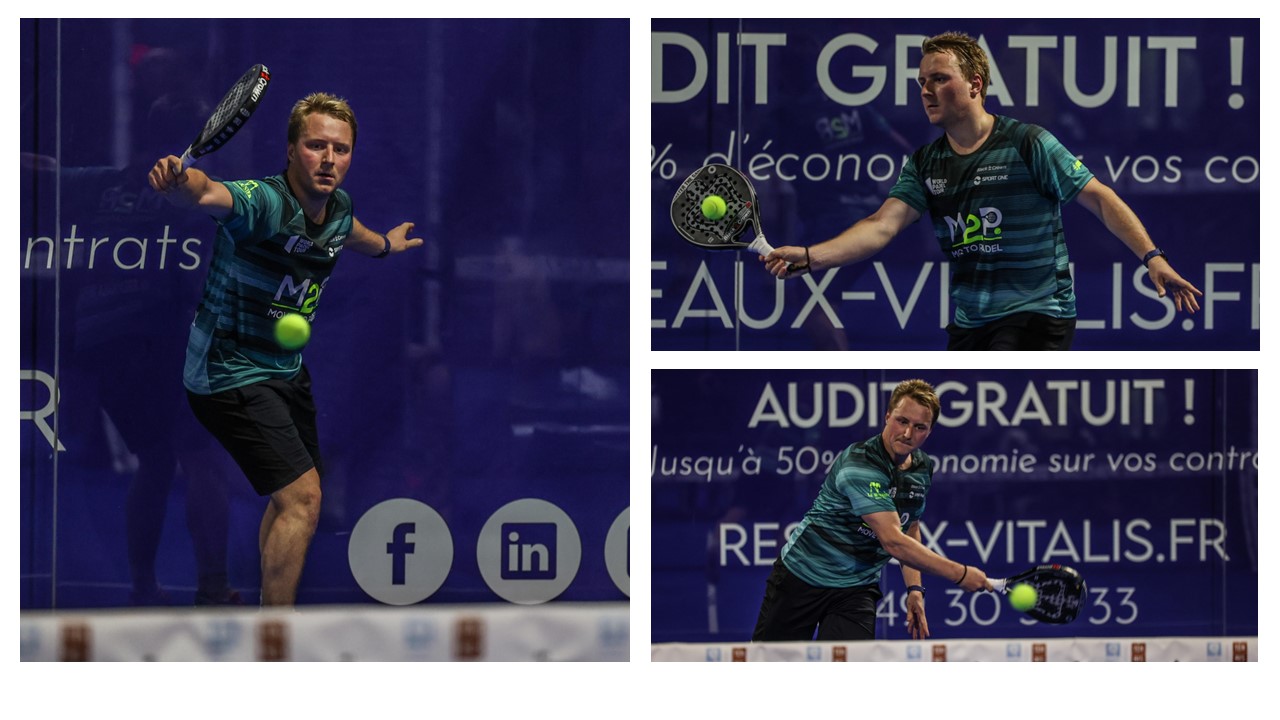 Jeremy Gala: “Promote the padel among young people in Belgium remains a challenge”
Jeremy Gala: “Promote the padel among young people in Belgium remains a challenge”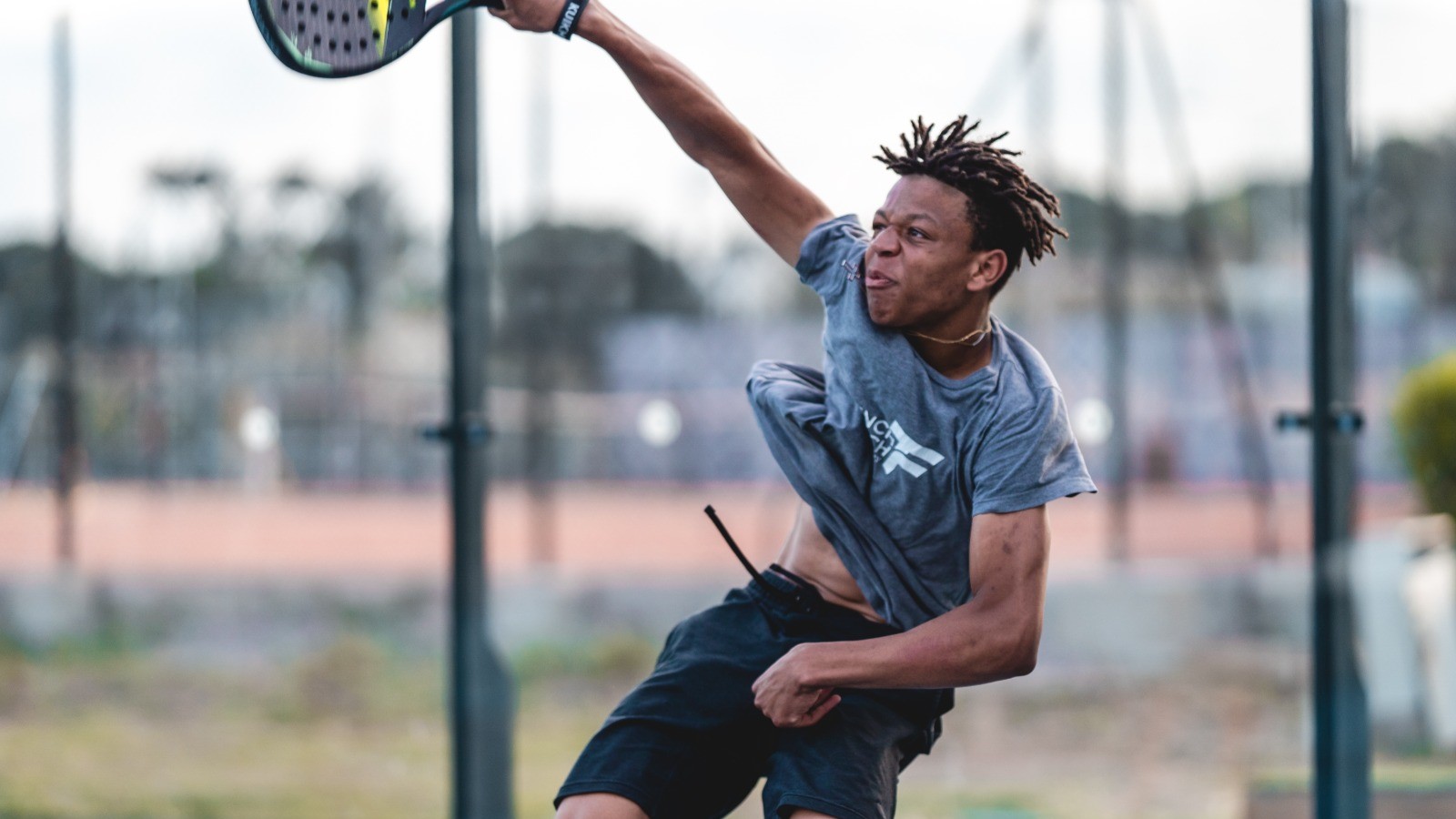 The French Touch Academy organizes its selection day Padel-Study
The French Touch Academy organizes its selection day Padel-Study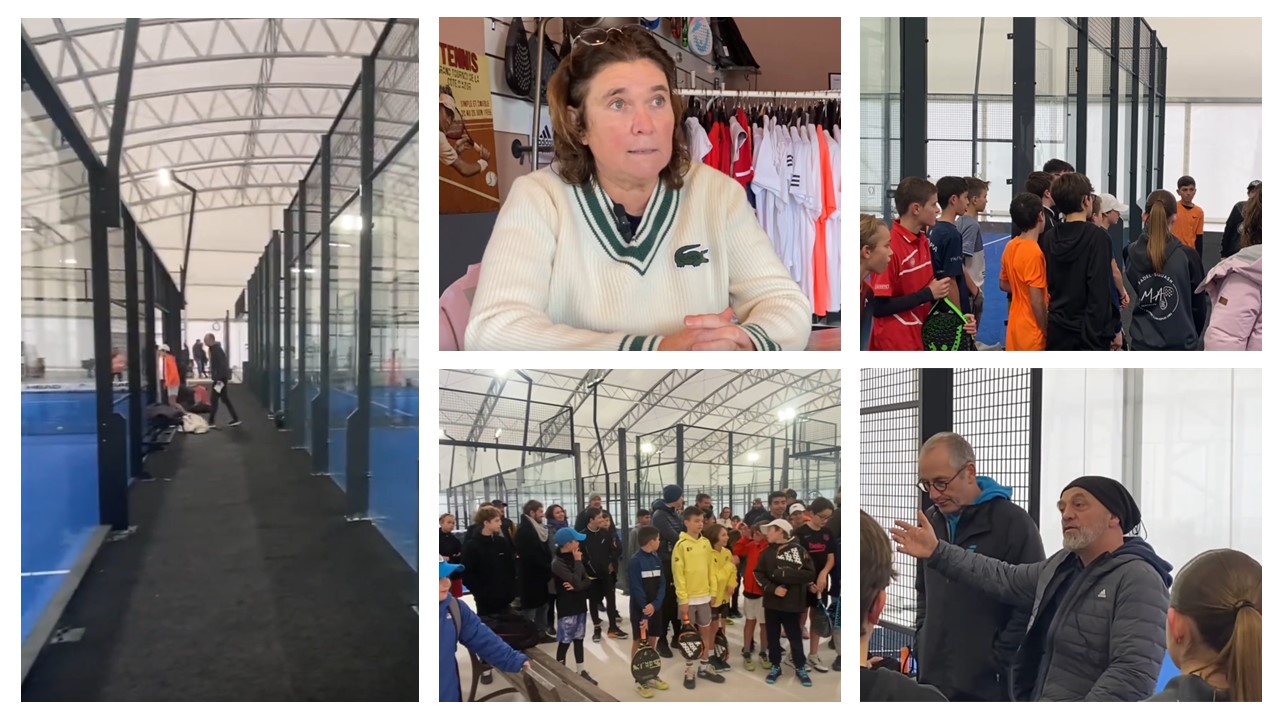 Report on the detection and training of younger generations
Report on the detection and training of younger generations